What a week this week has been
We have totally immersed ourselves in history
Learning all about The Great Fire of London
Following on from last week’s learning
All about The Great Plague
This I think is the way my children learn best
Firing up their enthusiasm with visits and workshops
Encouraging them to learn alongside other children and grown ups
Charging headlong into a topic
And spending a chunk of time really learning
Through the use of drama, art, stories, books
Visits, workshops and even a worksheet or three
It has been a very busy, very tiring
Incredibly inspirational and rewarding week
Fire, Fire!
We started on Monday
With a trip to London
For a guided walk around the city of London
We used All Hallows Church as our base
And had a wonderful guide called Margaret
Who was so knowledgeable and so engaging
We all loved her!
The children and their grown ups all enjoyed the walk
And learned a lot from it and the follow up activities
After lunch at the church
We started our tour at Tower Hill
It was wonderful to be so close to The Tower of London
To see where, in 1666, the gunpowder was stored
Thankfully the fire never reached the tower
Or history would have been very different
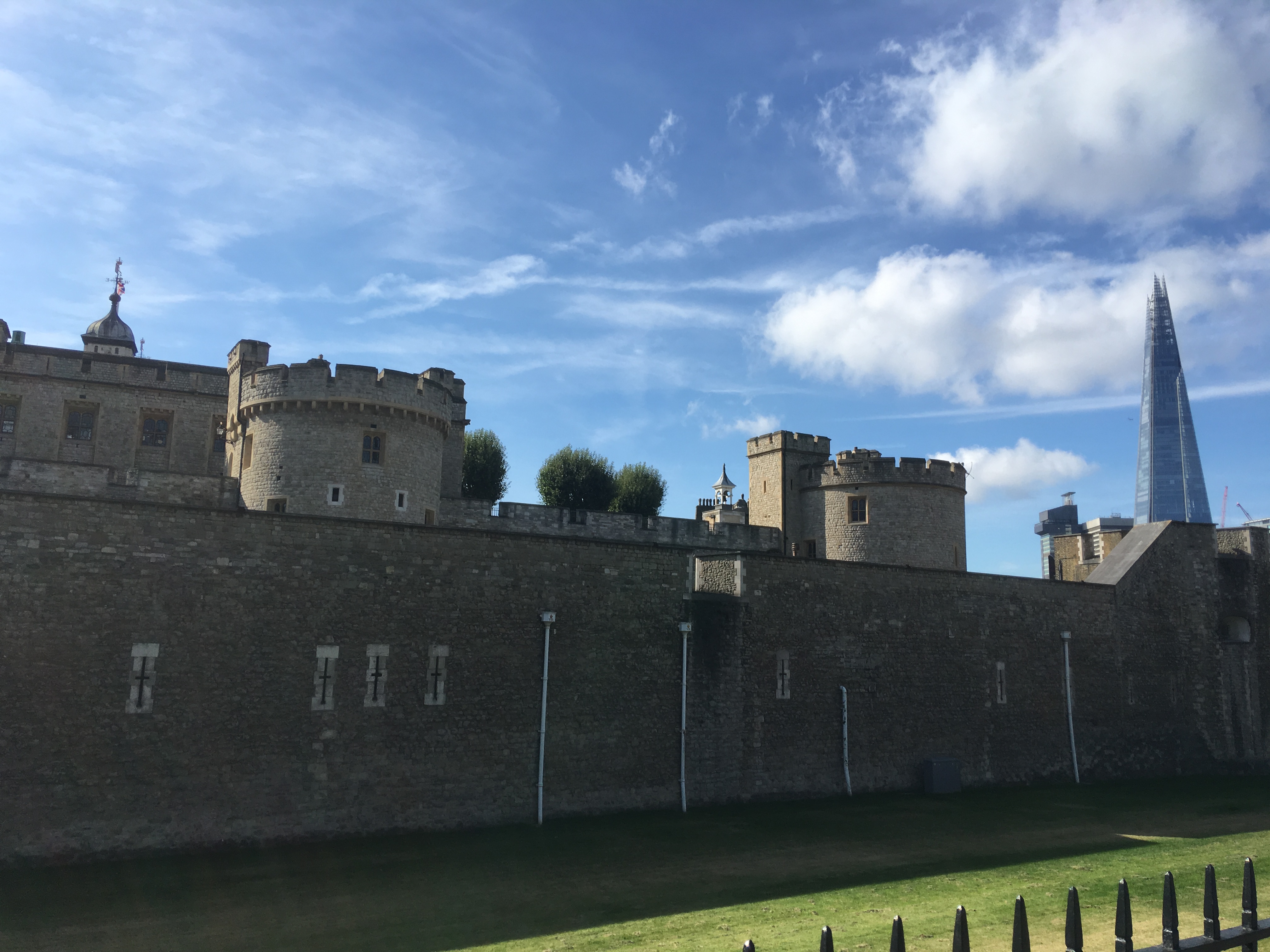
At All Hallows Church
We saw the tower
Where Samuel Pepys stood
Where he witnessed the fire
Surveyed the situation
In order to report to the king
It is amazing that the exact same tower still stands today
The stairs to the tower that Samuel Pepys used are still the same
So wonderful to experience history in this way
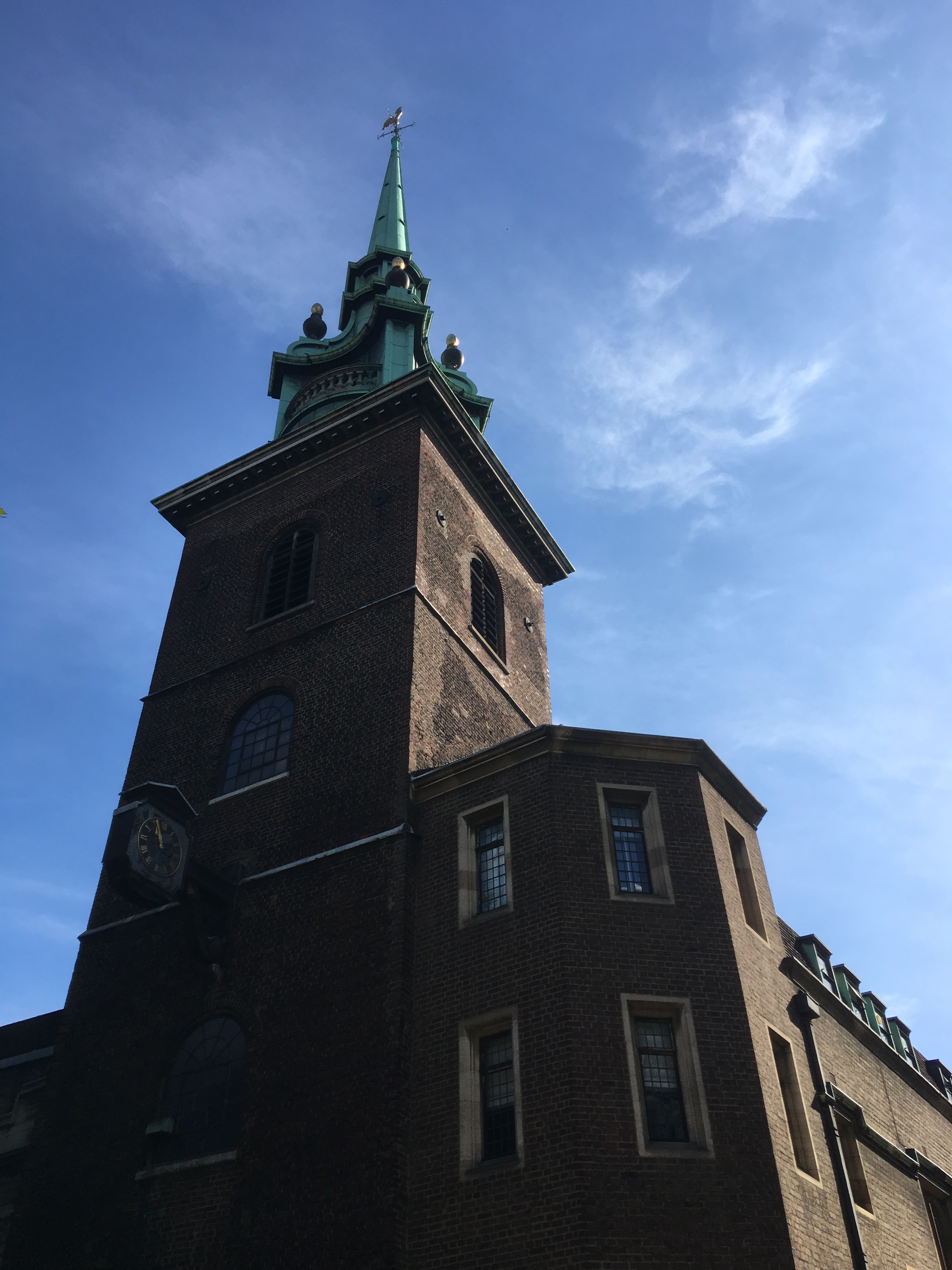
From All Hallows
We walked to the old Bakers Hall
We stopped to see an etched window
Showing a 1666 bakery
We looked at the oven
Talked about how the bakery worked
We learned about Thomas Farriner
And heard the story
His story
Of how The Great Fire of London started
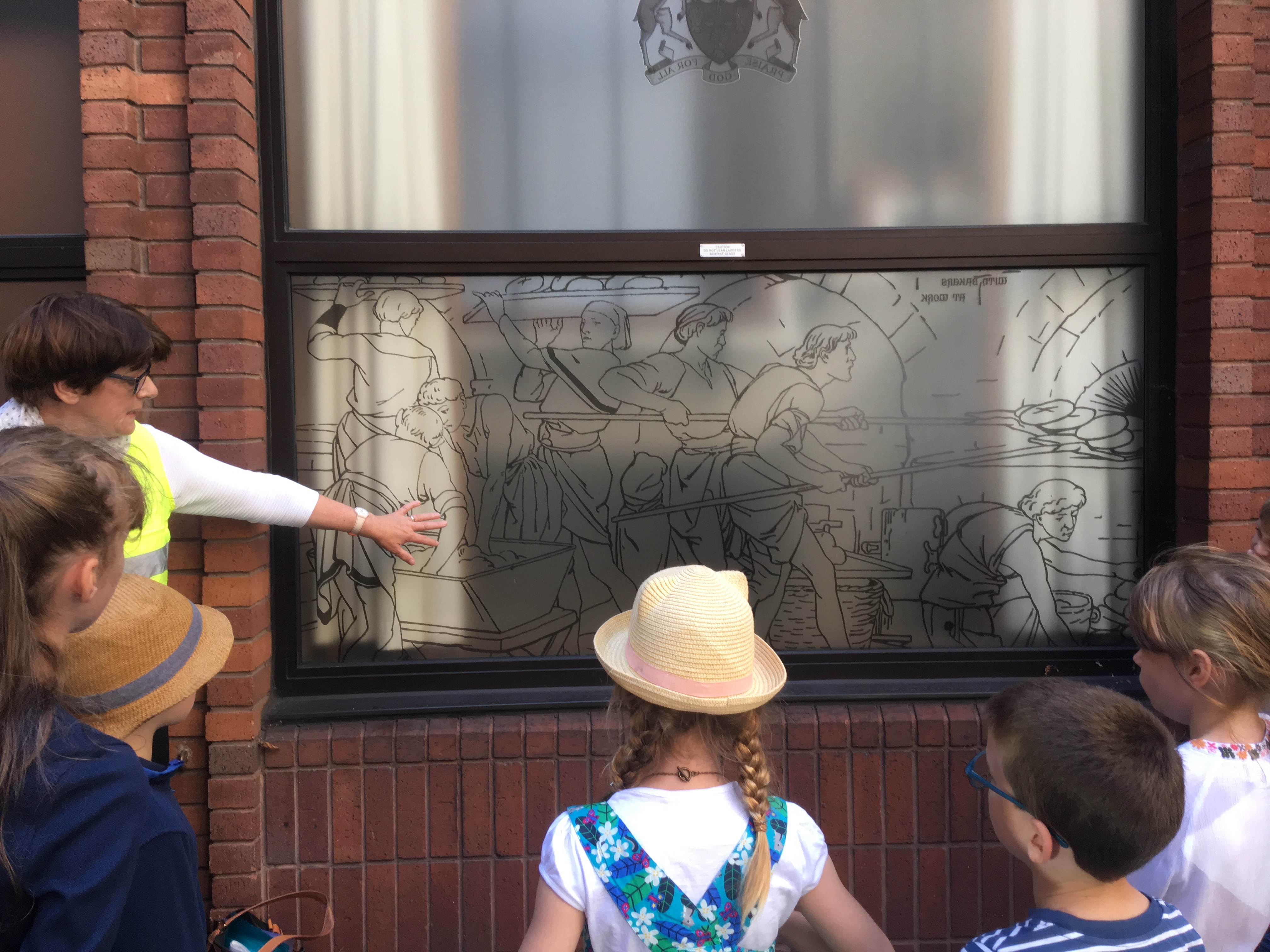
We also learned about Bakers Hall
And about how all the trade halls had their own symbols
The Bakers had a sheaf of wheat

From Bakers Hall
We walked in the footsteps of Thomas Farriner
The route he would have taken home to his bakery
After a meeting at the hall
Our next stop was
St Dunstan in the East Church Gardens
Originally built in 1100
The church was severely damaged in the Great Fire of London 1666
It was patched up and a steeple tower was added
By Sir Christopher Wren
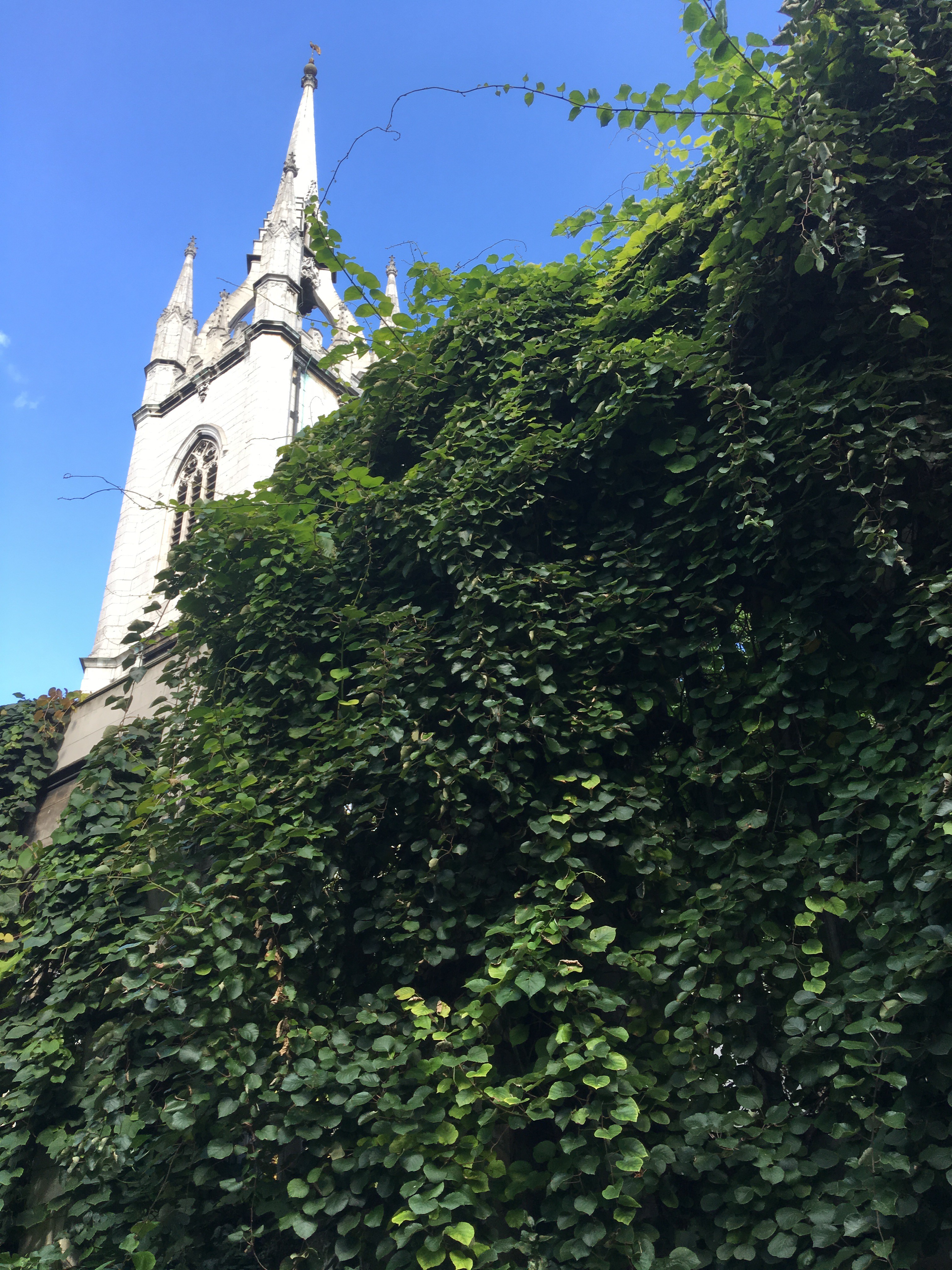
The church was hit in the blitz of 1941
This time it was not rebuilt
Instead in 1967 the City Of London turned it into a garden
A place for the people of the city to enjoy

And it is most enjoyable
The church remains
And gardens
Are truly beautiful
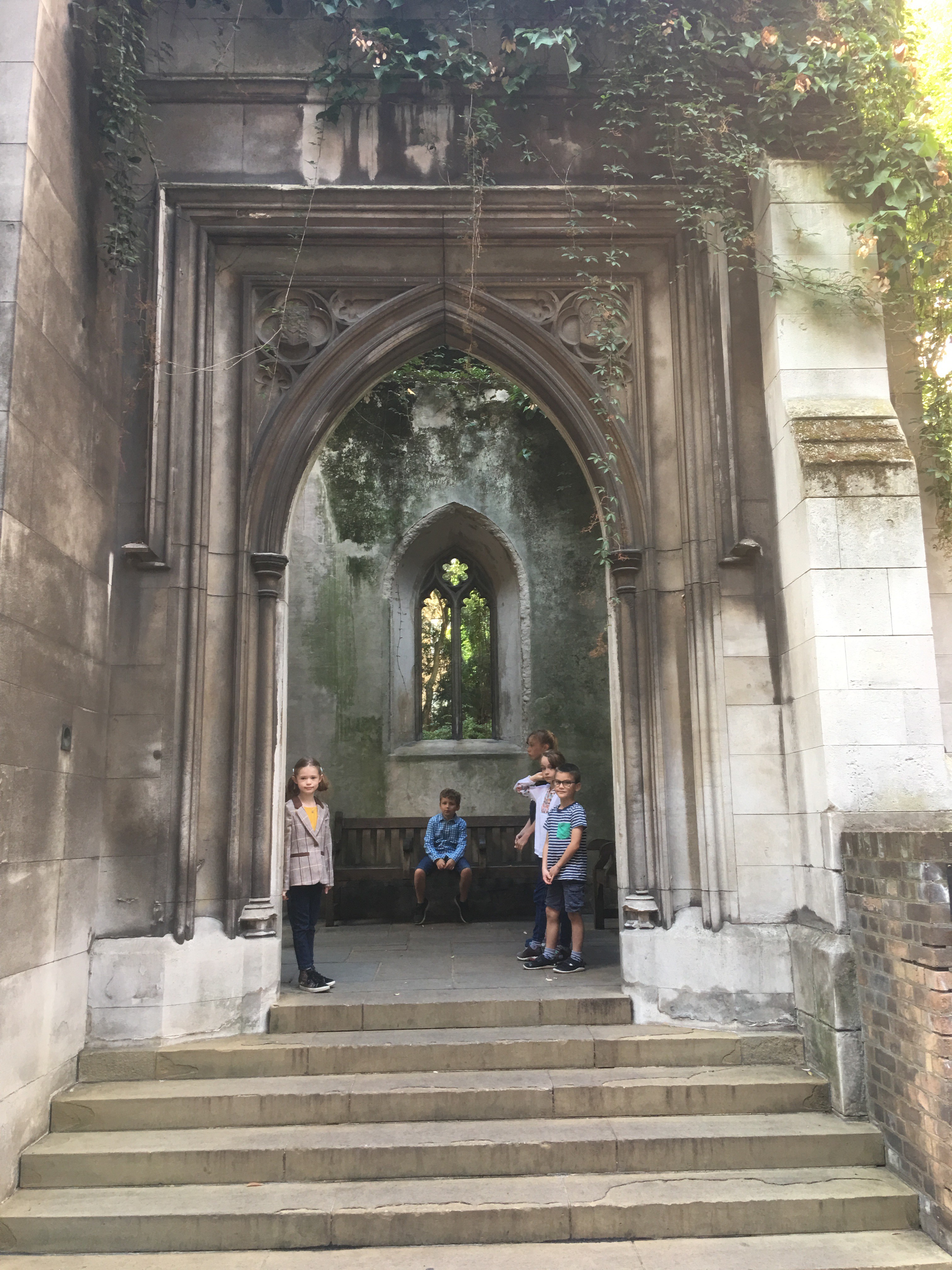
They reminded me of Romeo and Juliet
A beautiful place to sit and reflect
A wonderful space to put on a theatre show
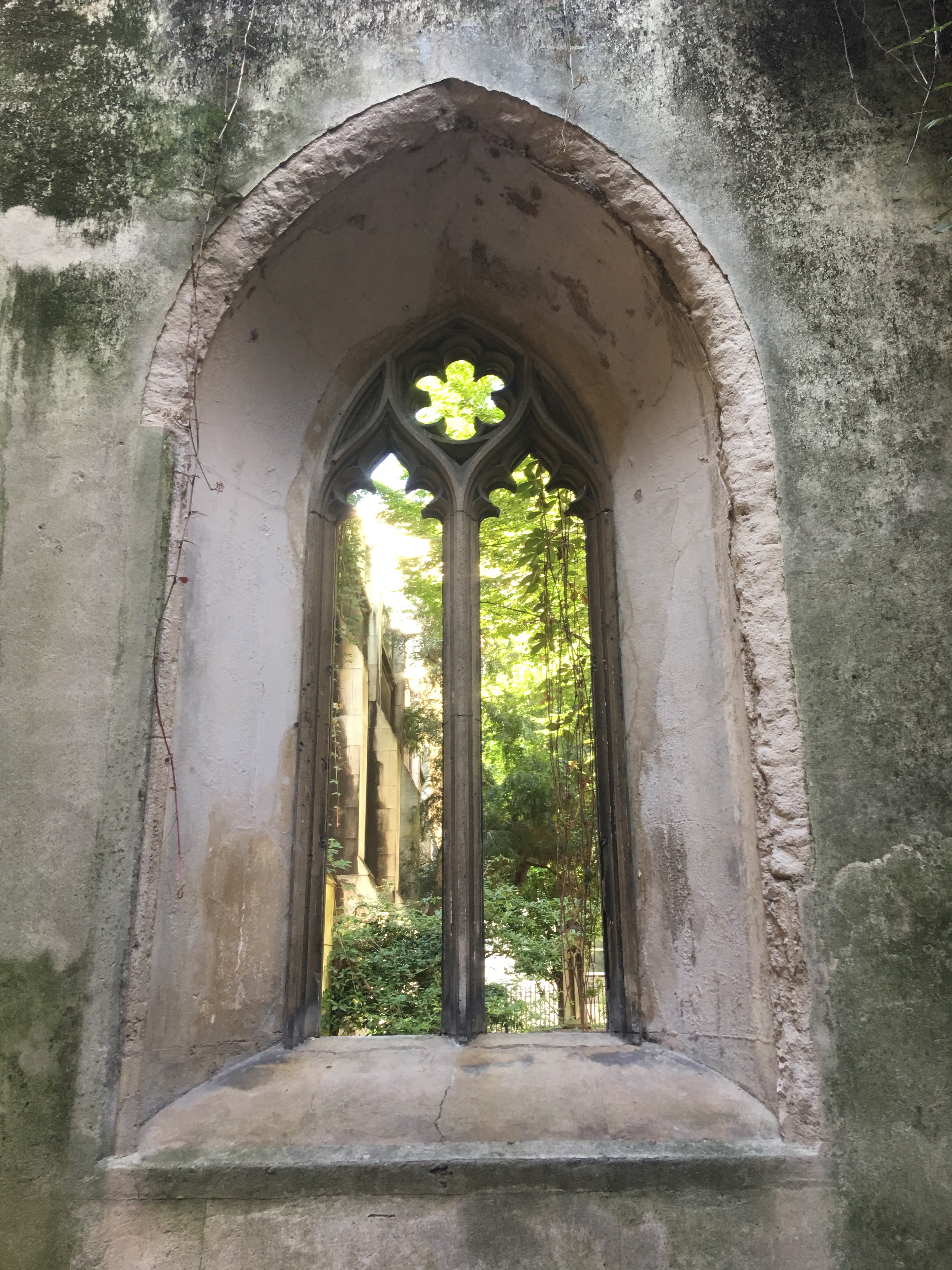
You forget that in the heart of London
There are places of peace like this
Places to be slow and to take stock
Places to rest
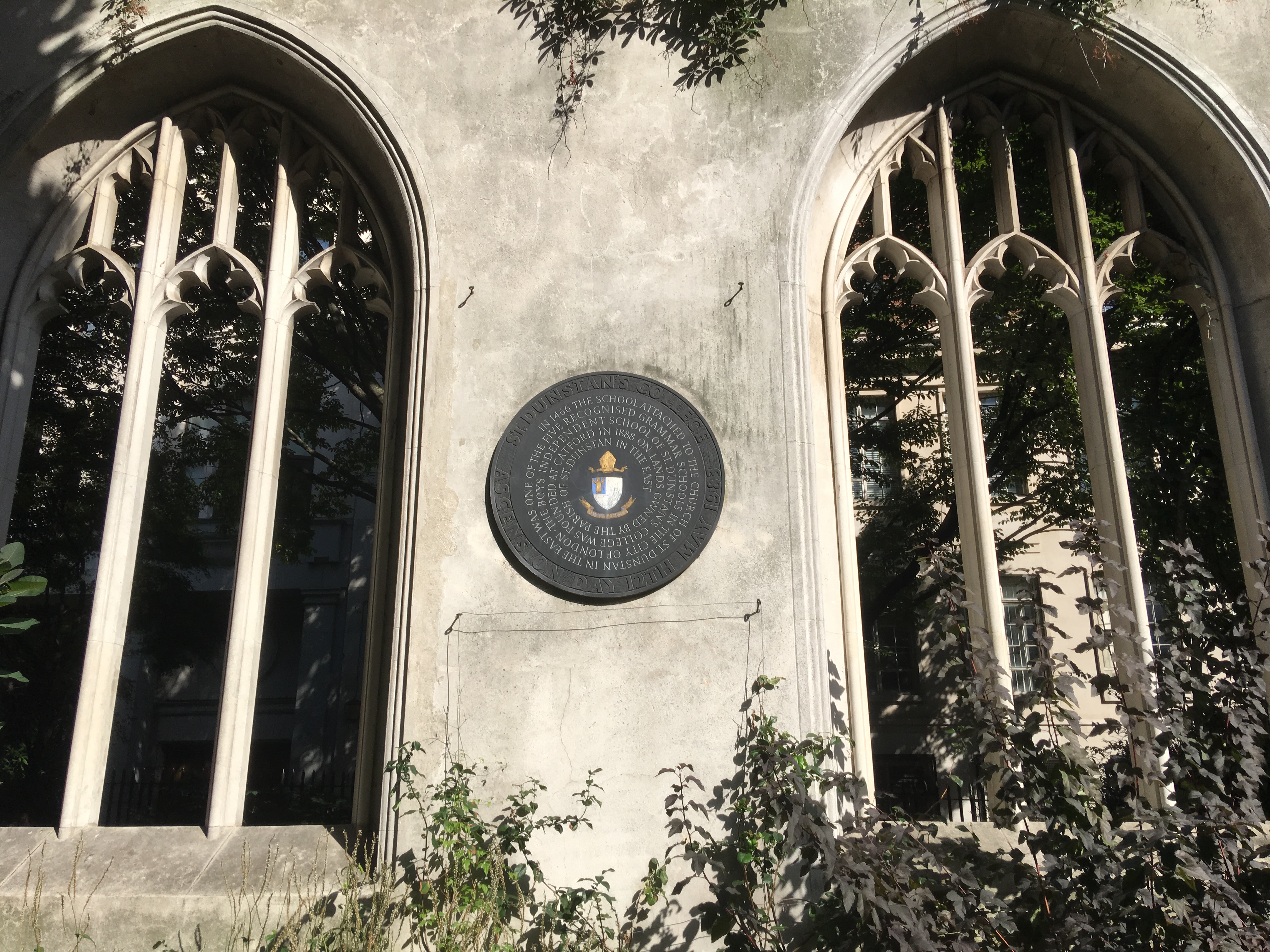
The next stop on our tour was
St Mary Hill Church
Much of the original church was destroyed in The Great Fire
But the walls and frame remained
Sir Christopher Wren rebuilt the churches interior and east end
He added a beautiful lantern to the west tower
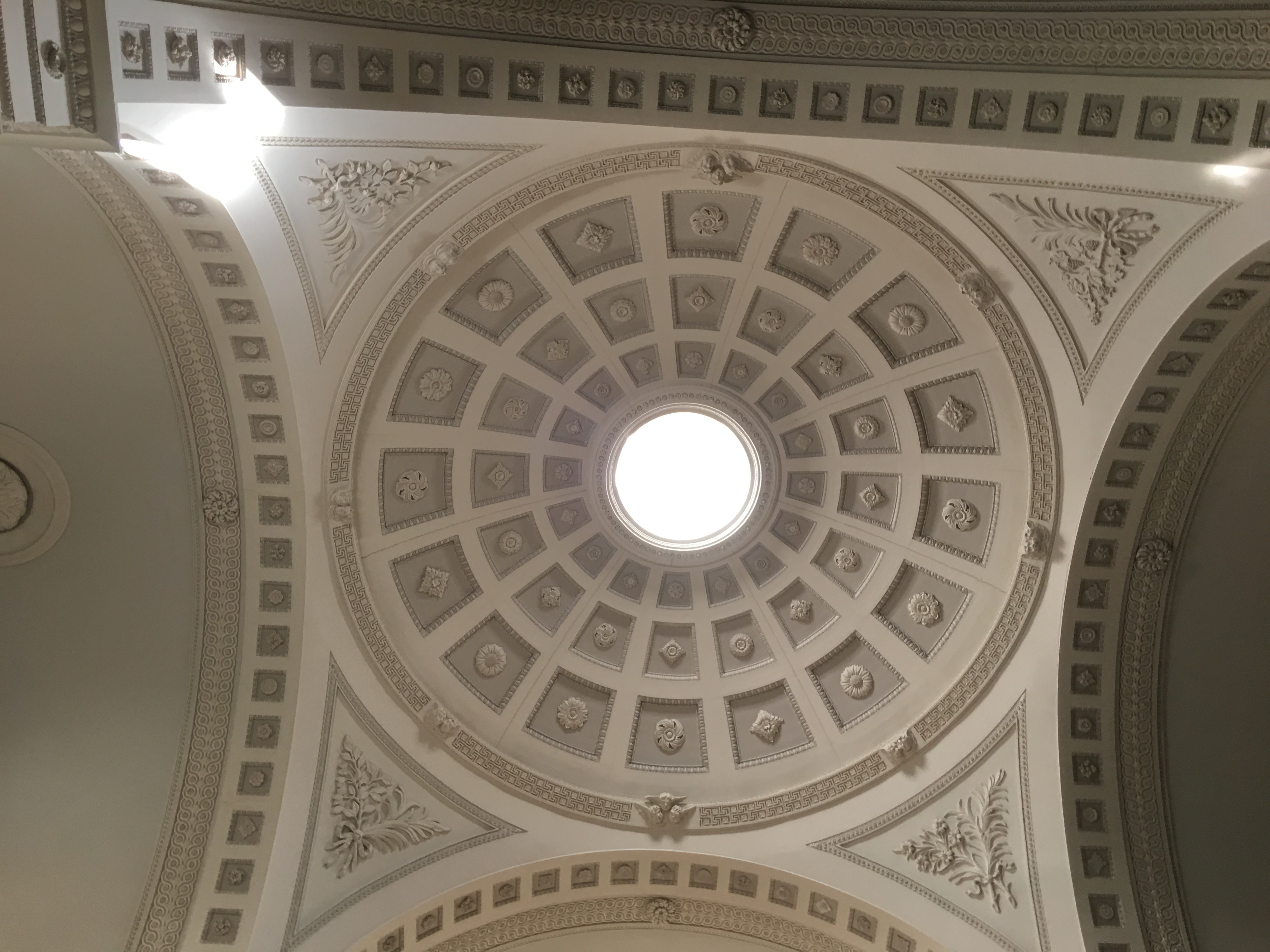
A practise for the dome that would crown St Paul’s Cathedral
This was a true awe and wonder moment
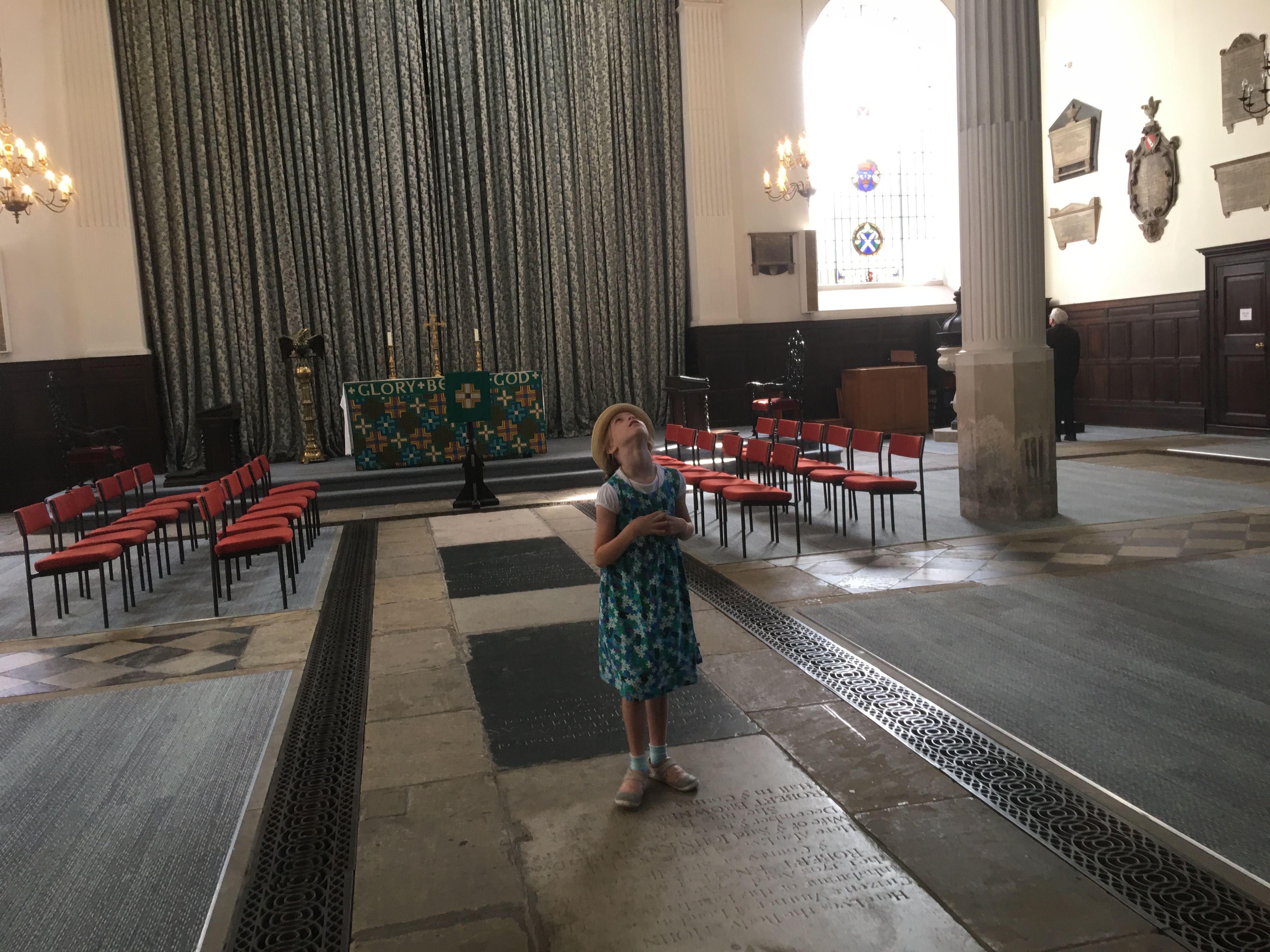
Outside of the church
We also spent some time talking about the beautiful city of London
The striking contrasts between old and new
That marry together so well
A stunning, striking collection of buildings that tell
The tale of the city
That tell our story
Our history
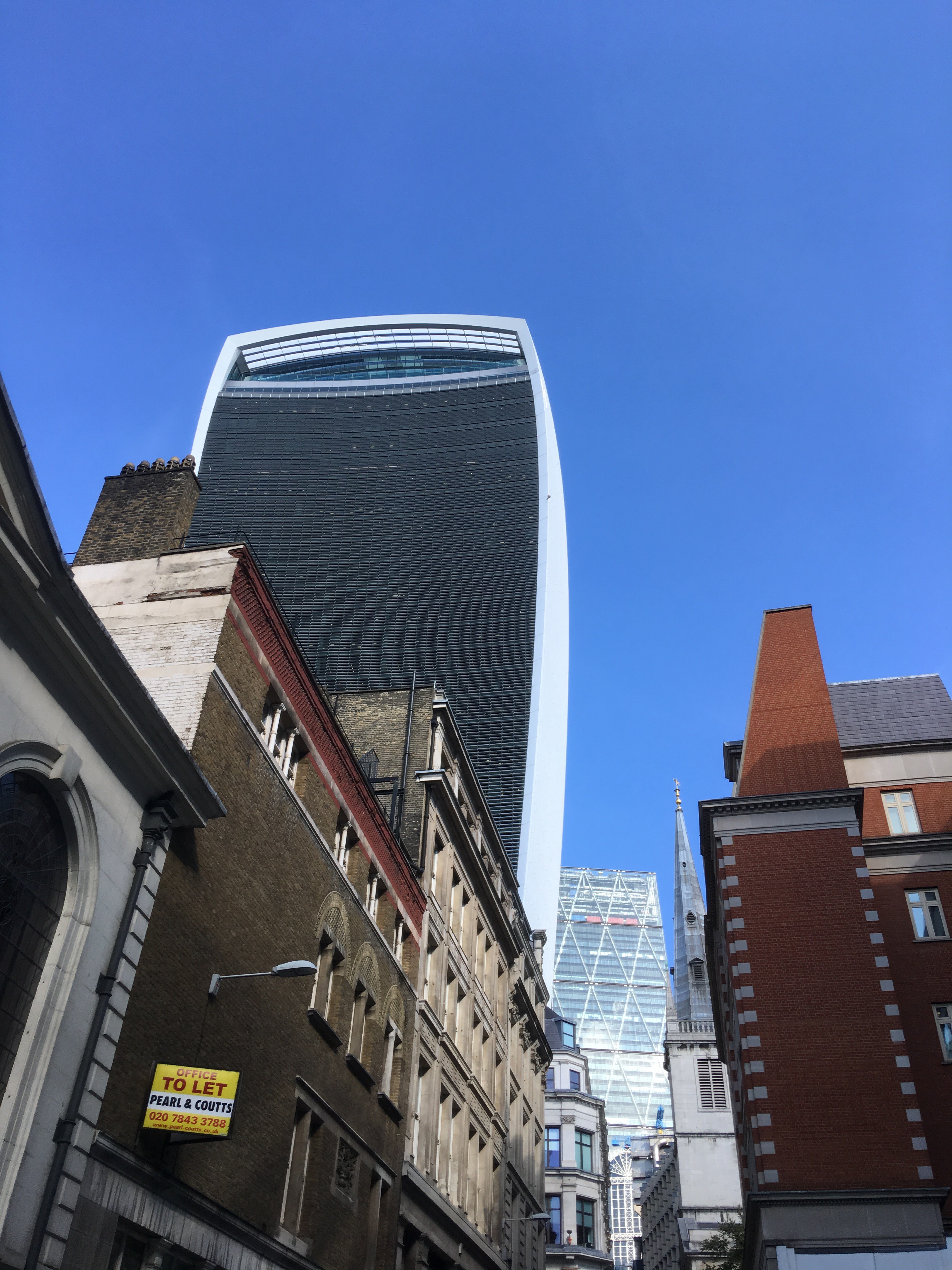
Our walk continued through some of the smaller narrower city streets
Our guide, Margaret explained how the houses of London were built of wood
The streets were narrow and the houses almost touched at the top
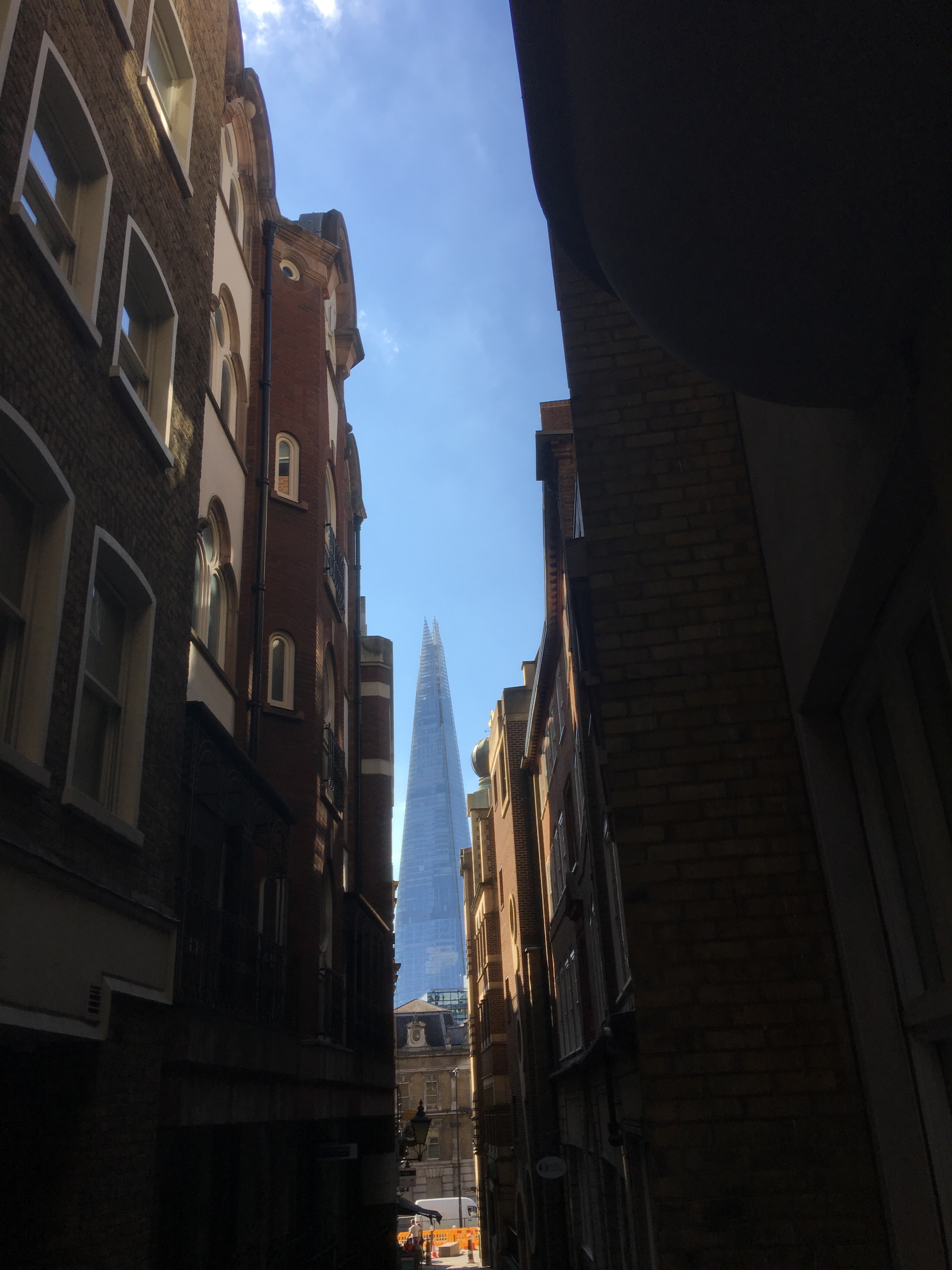
She told us that they were close enough to lean out of the window and shake hands with the neighbour
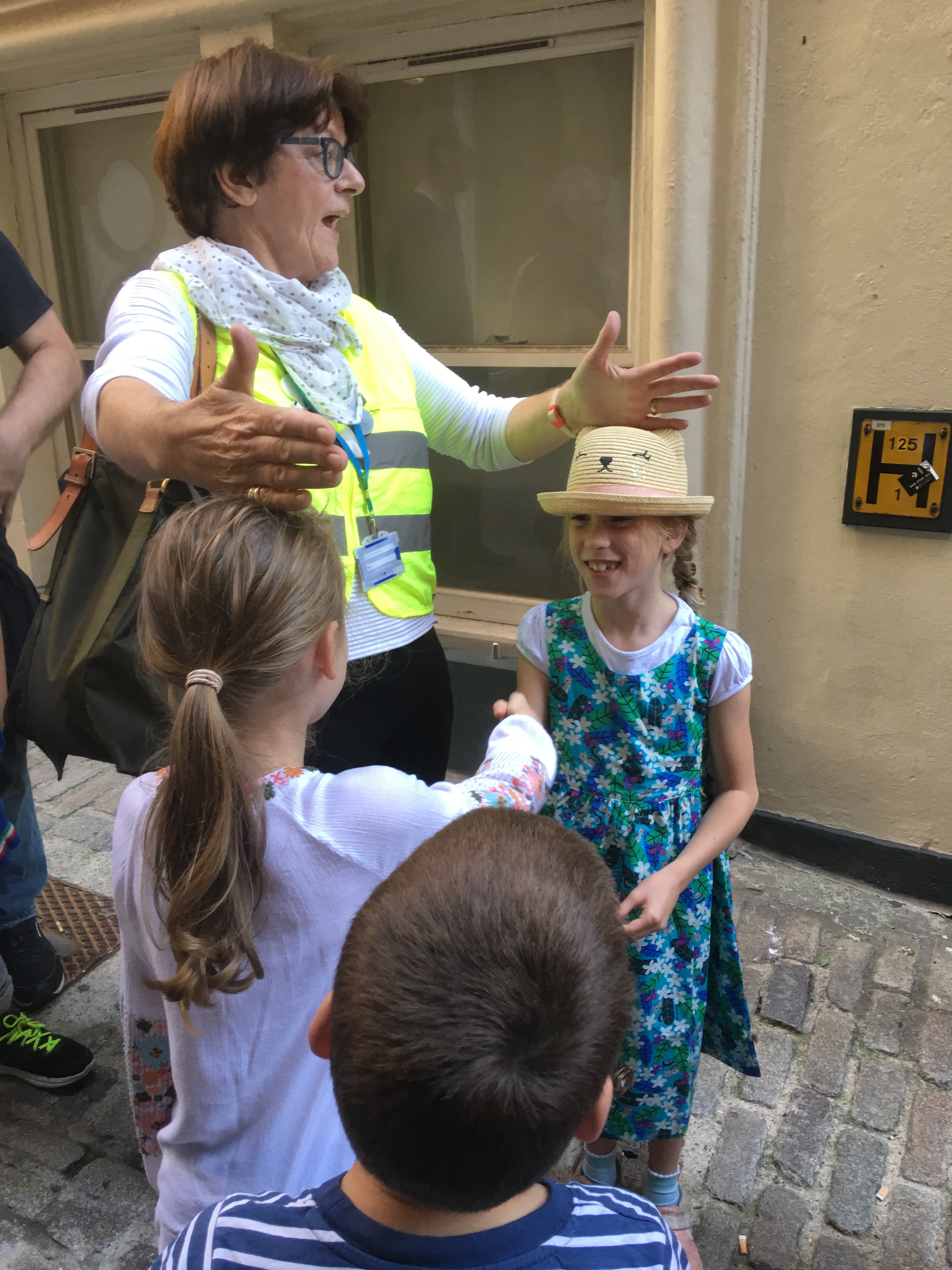
She also explained how there were no toilets and therefore they would use a pot or bucket
Which was then thrown out of the window into the street
Look out below!
Our next stop was The Monument
Built to commemorate The Great Fire of London and to celebrate the rebuilding of the city
Sir Christopher Wren and Dr Robert Hooke designed the Colossal Doric Column
It has a cantilevered staircase of 311 steps to a viewing platform
This is surmounted by a drum and copper urn from which flames emerge
We have often seen The Monument from a distance
It was good to get up close
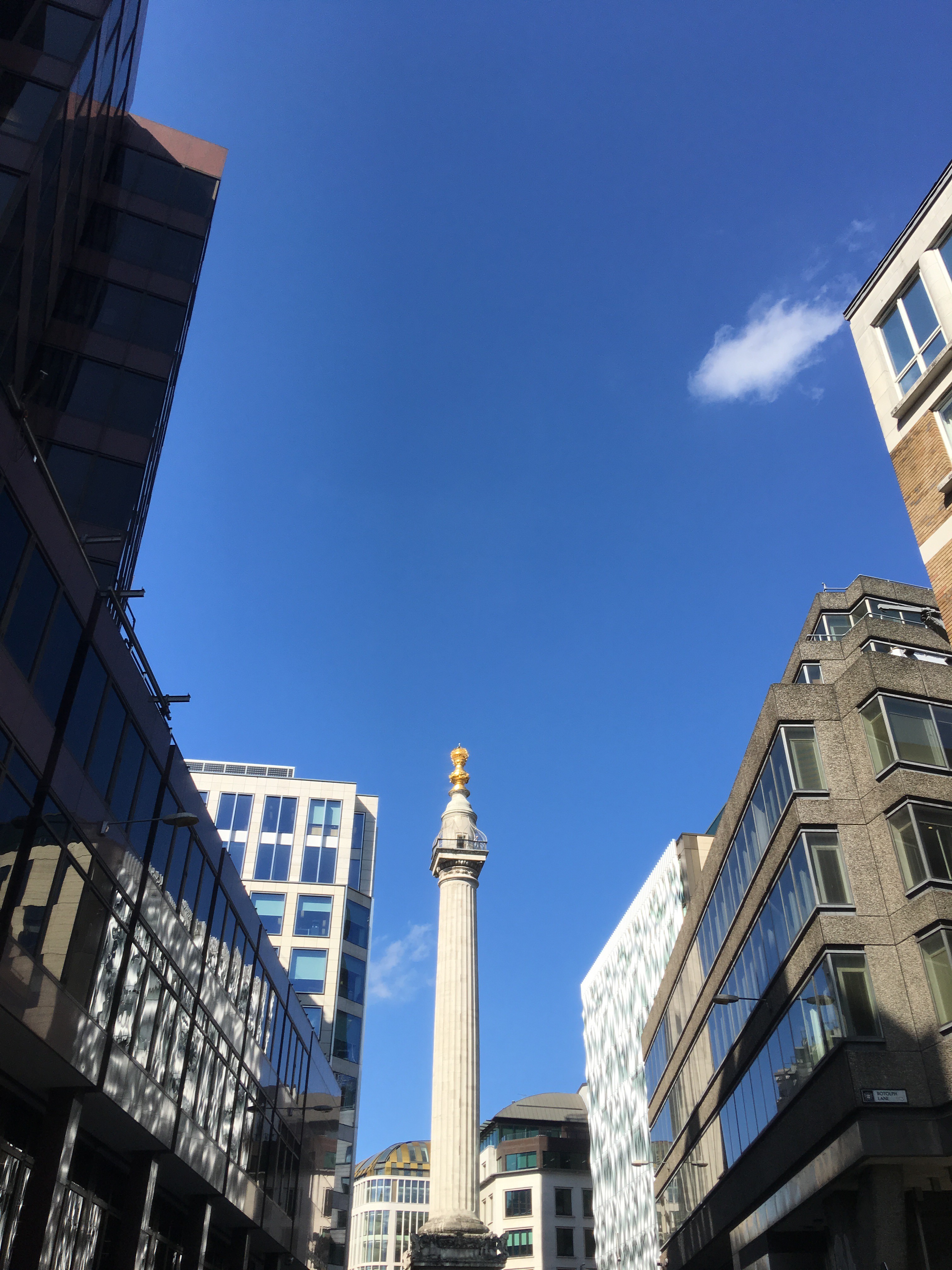
From The Monument
To Pudding Lane
Where pies and puddings were made
Where on 2nd September 1666
The Great Fire of London began
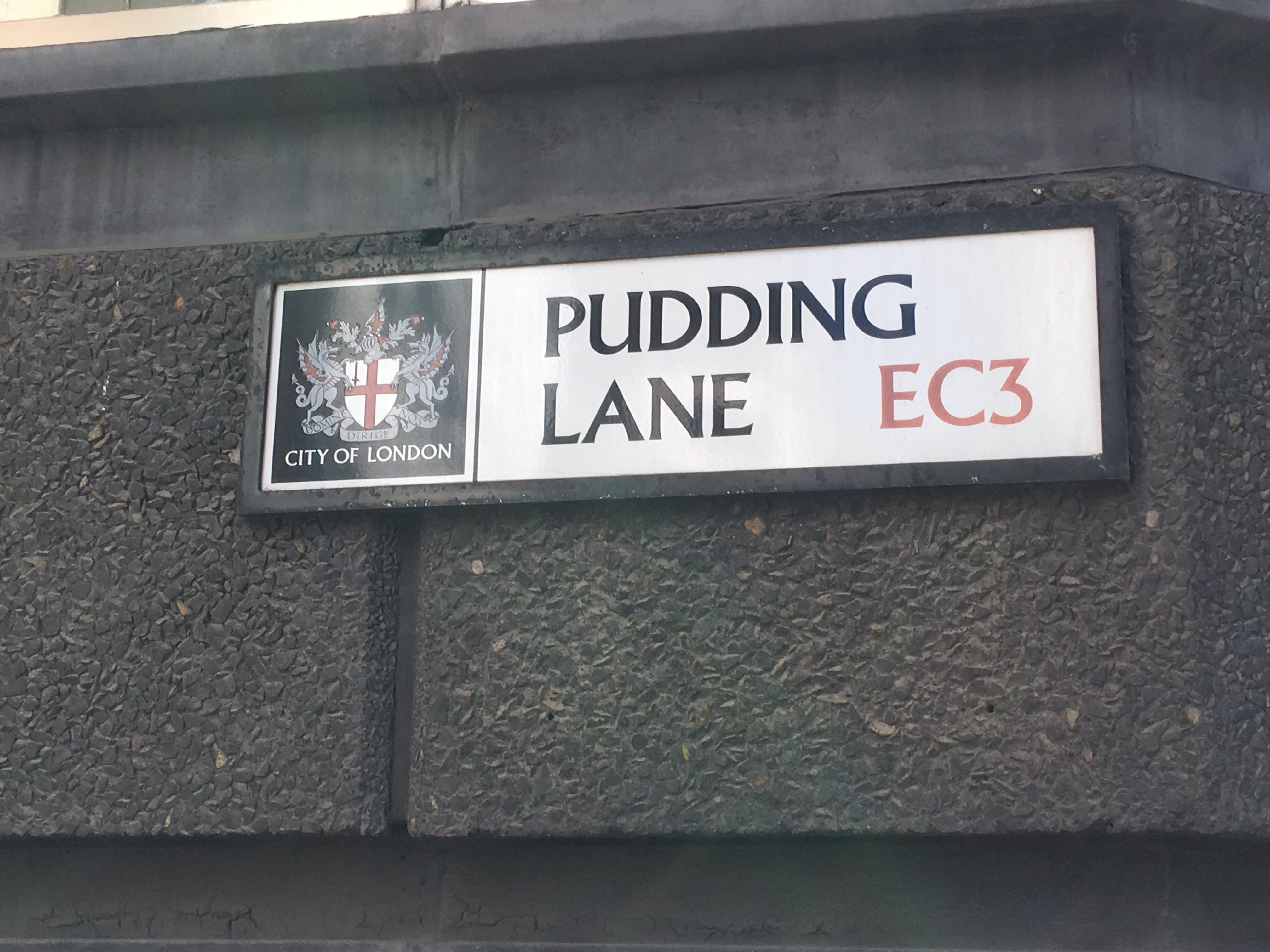
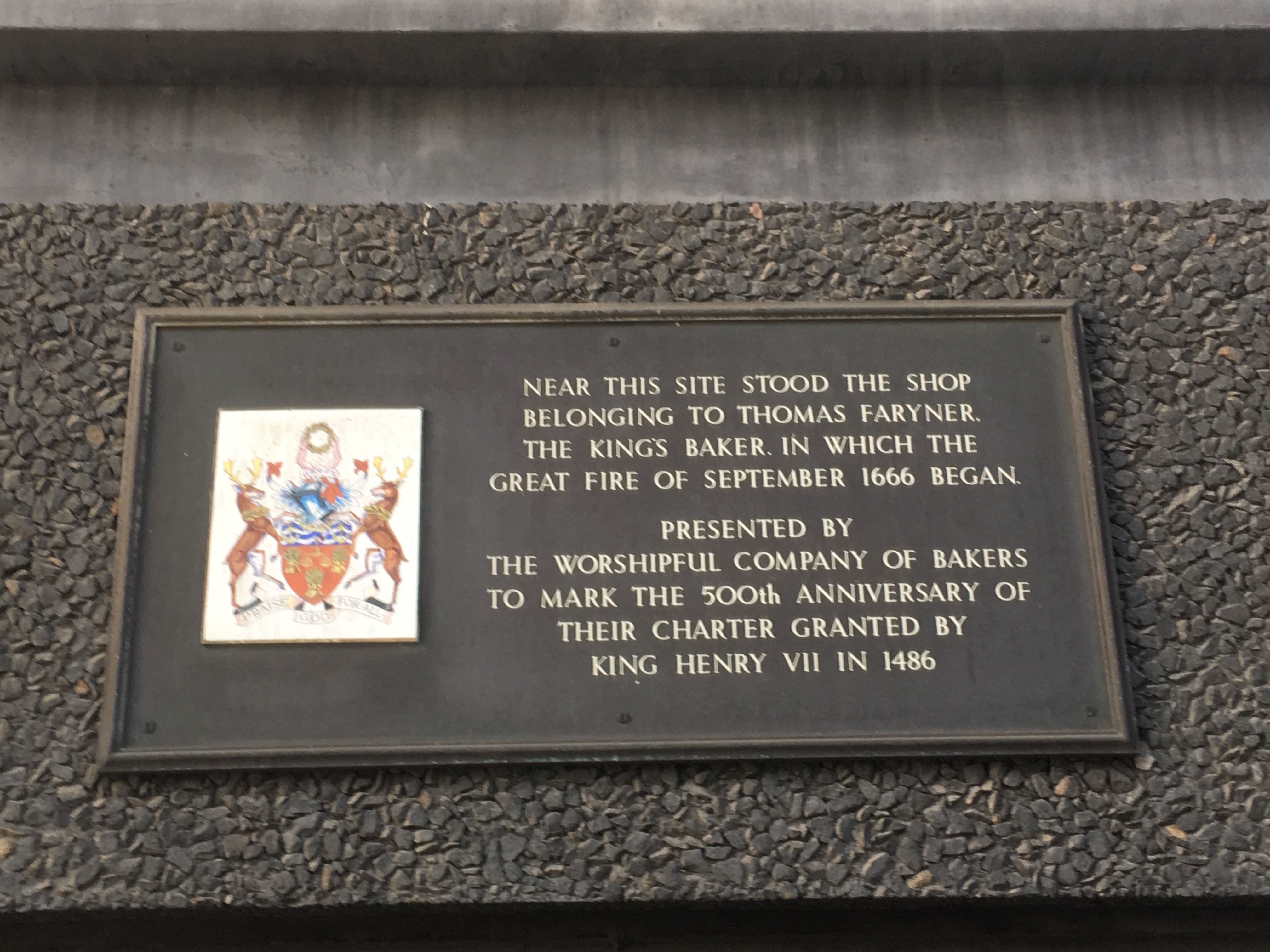
We walked from Pudding Lane to
Seething Lane
Where in 1666
One Samuel Pepys did live
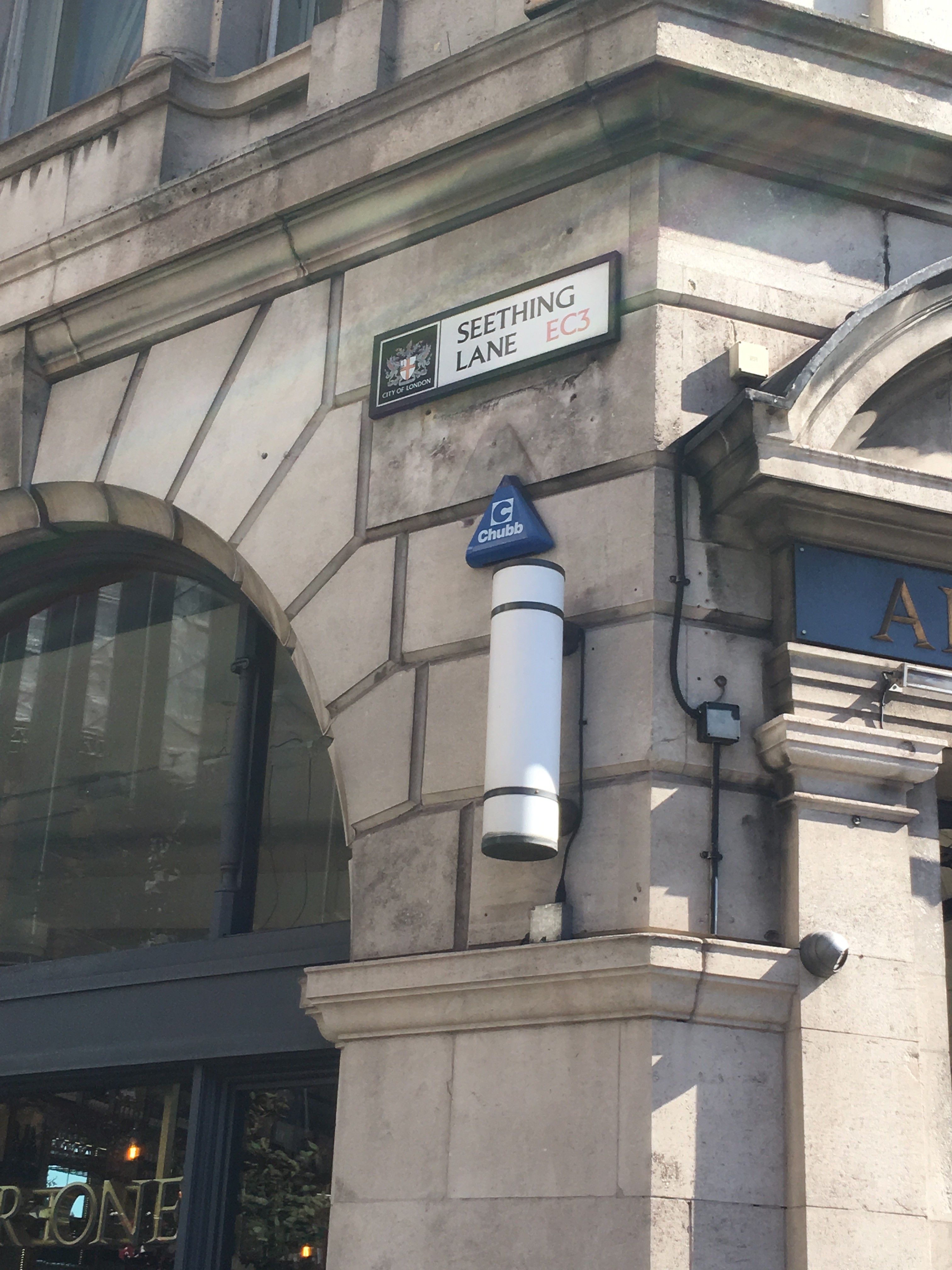
In the place where Samuel Pepys lived
There is now a bust and plinth
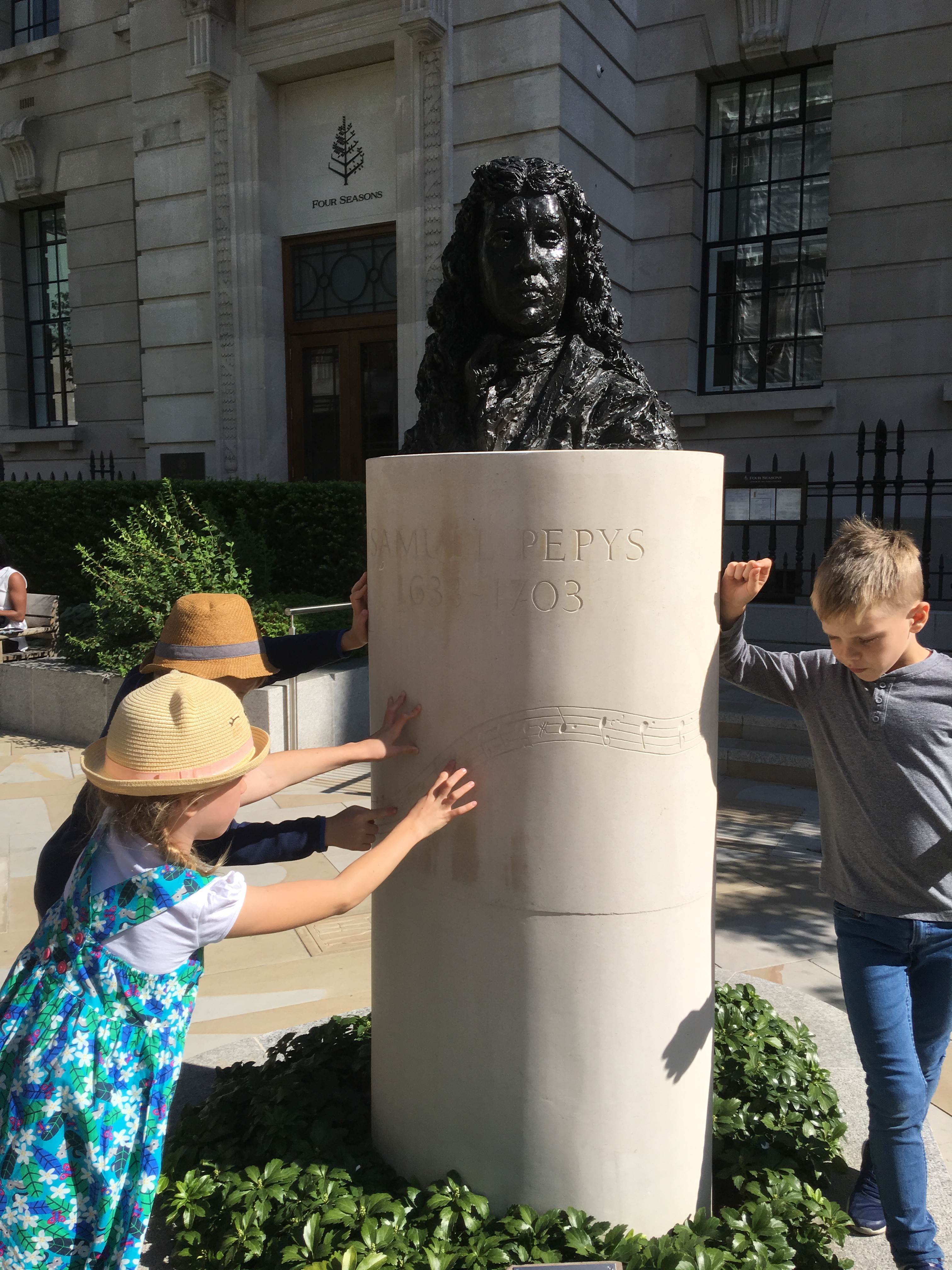
And lots of engraved paving stones
Showing the stories of the plague and the fire

We found a plague doctor
A rat and a flea
Pepys’ parmesan cheese
And his fine buried wine
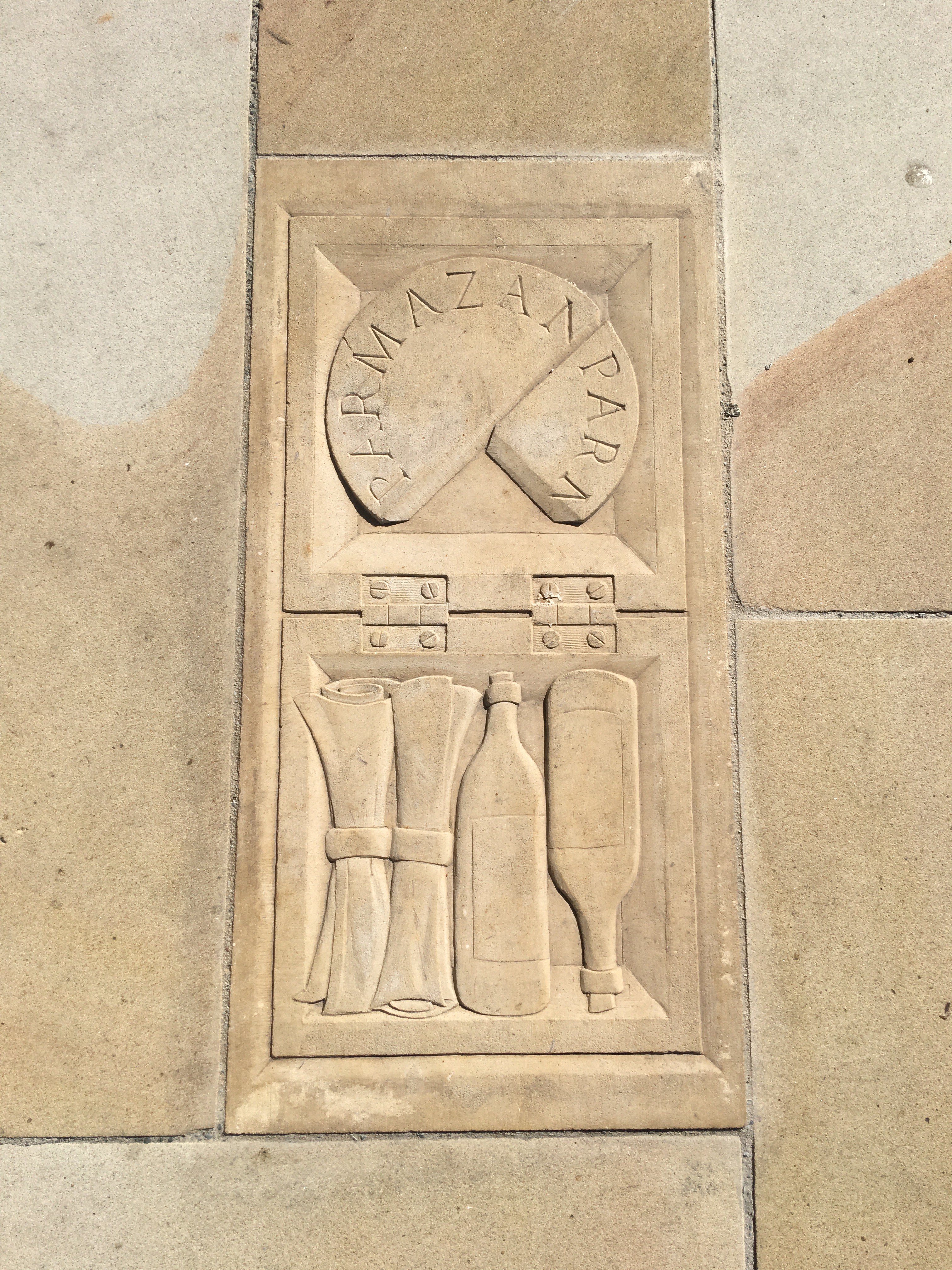
After seeing where Samuel Pepys lived
We visited his church
The place where he and his wife Elizabeth are buried
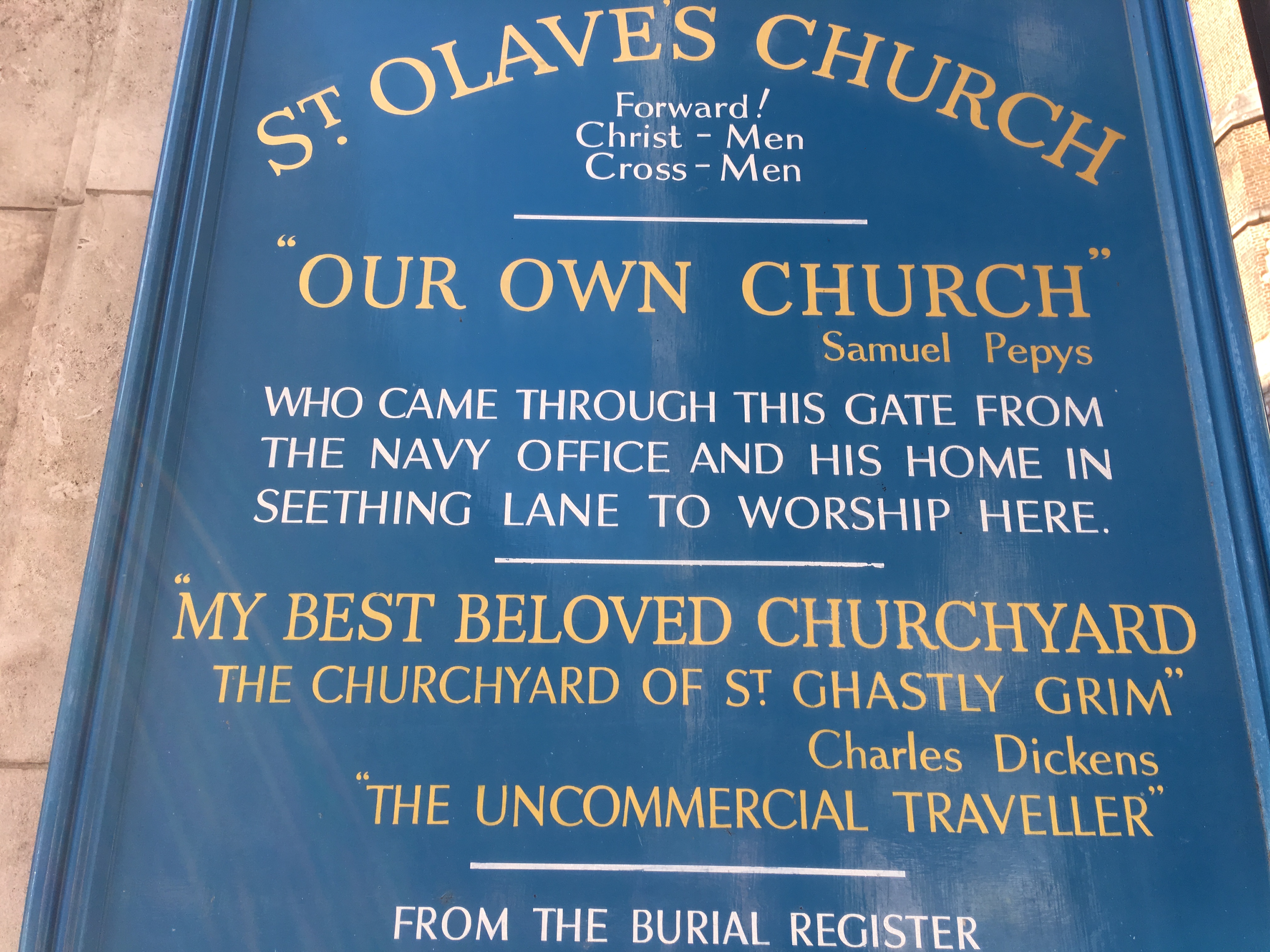
St Olave’s Church
John Betjeman described St Olave’s as “a country church in the world of Seething Lane.”
The church is one of the smallest in the City
One of only a handful of medieval City churches that escaped the Great Fire of London in 1666
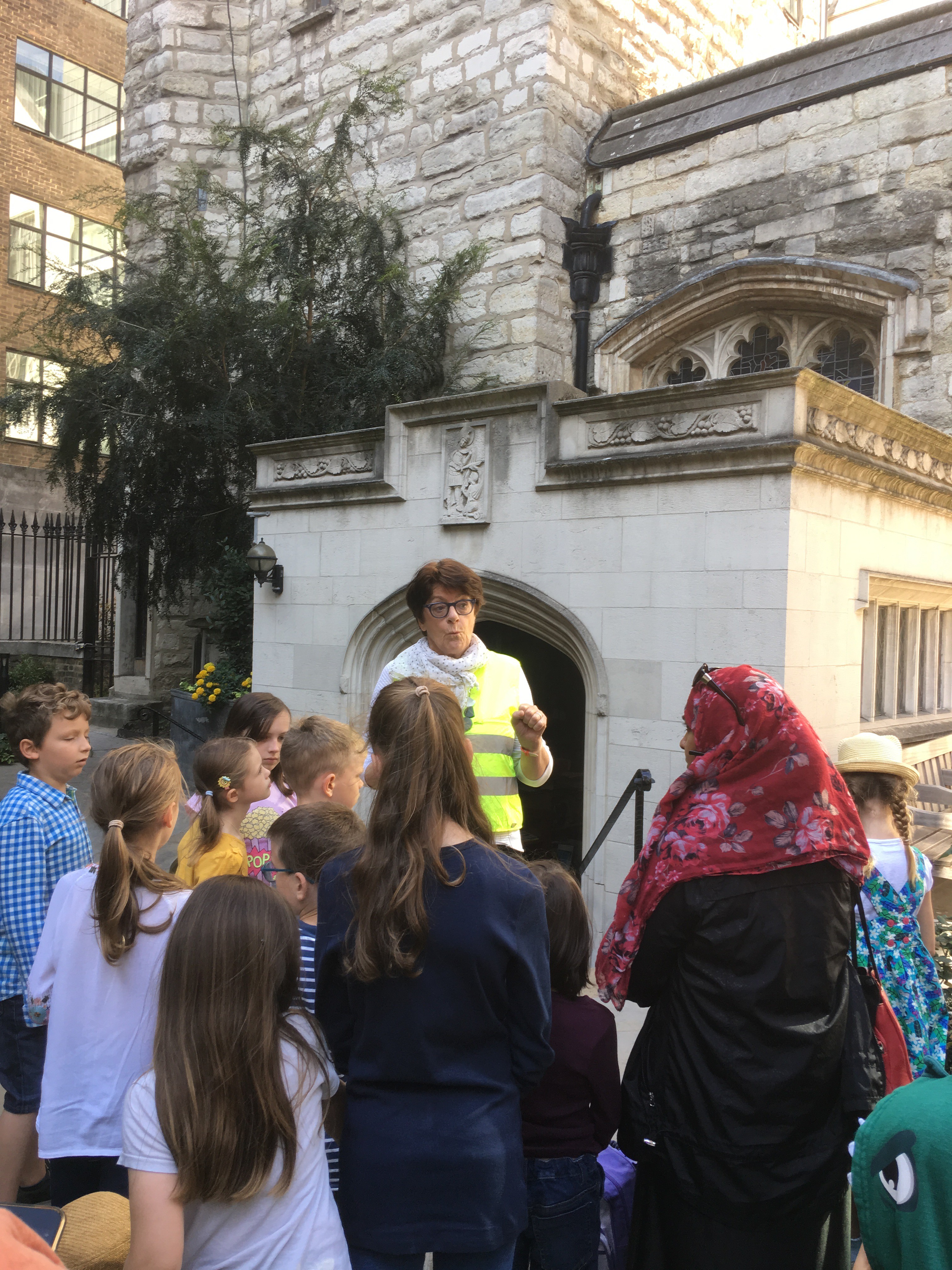
The flames from The Great Fire came within 100 metres or so
But the wind changed direction and the church survived
300 victims of the plague are buried in the churchyard
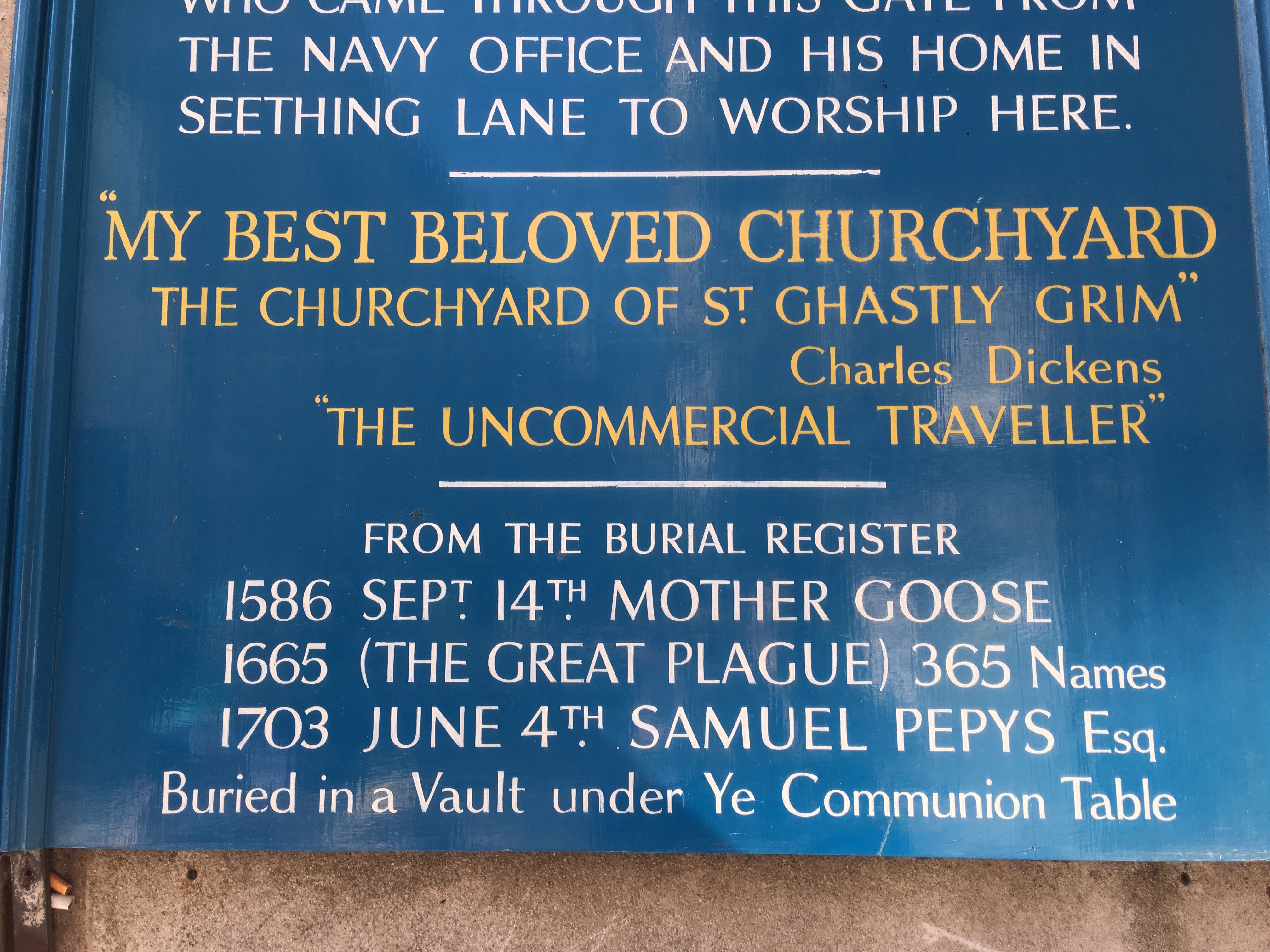
Inside the church
Both Pepys and his wife are honoured and remembered
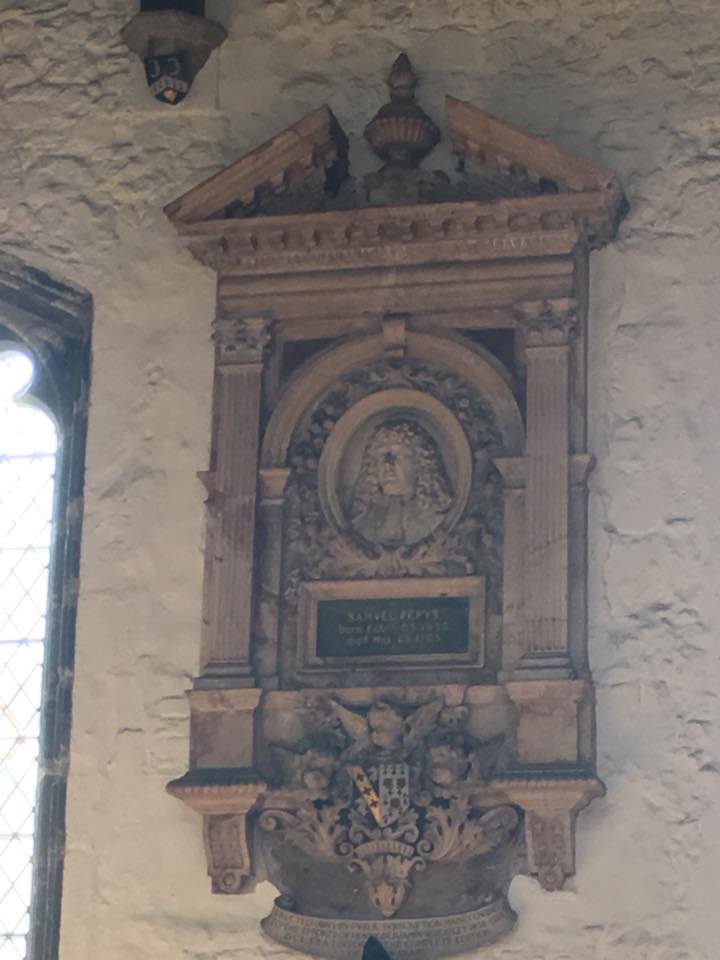
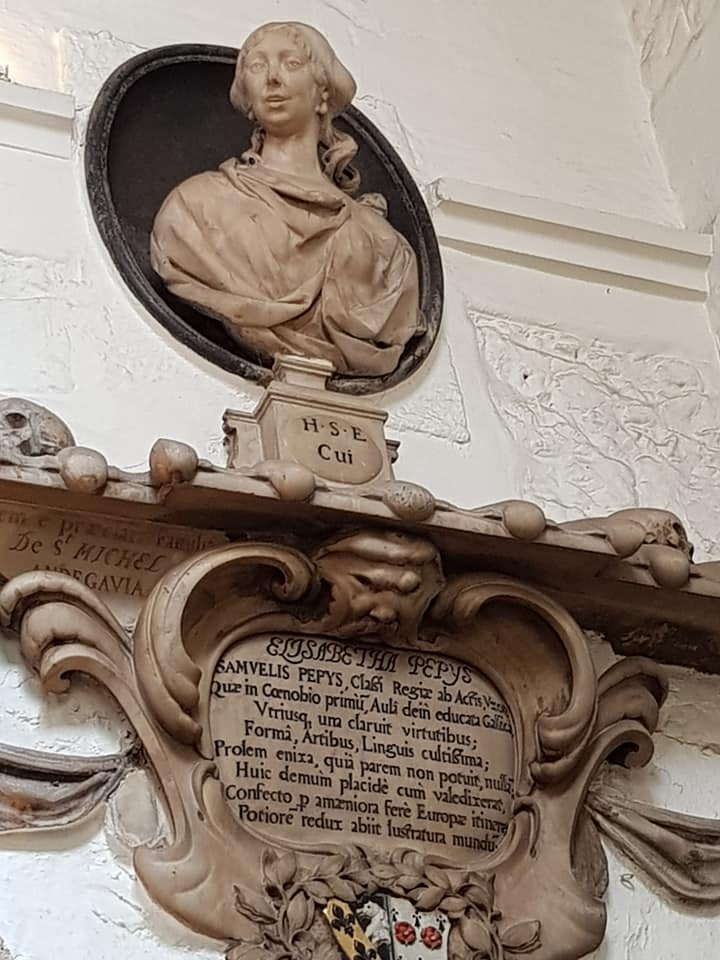
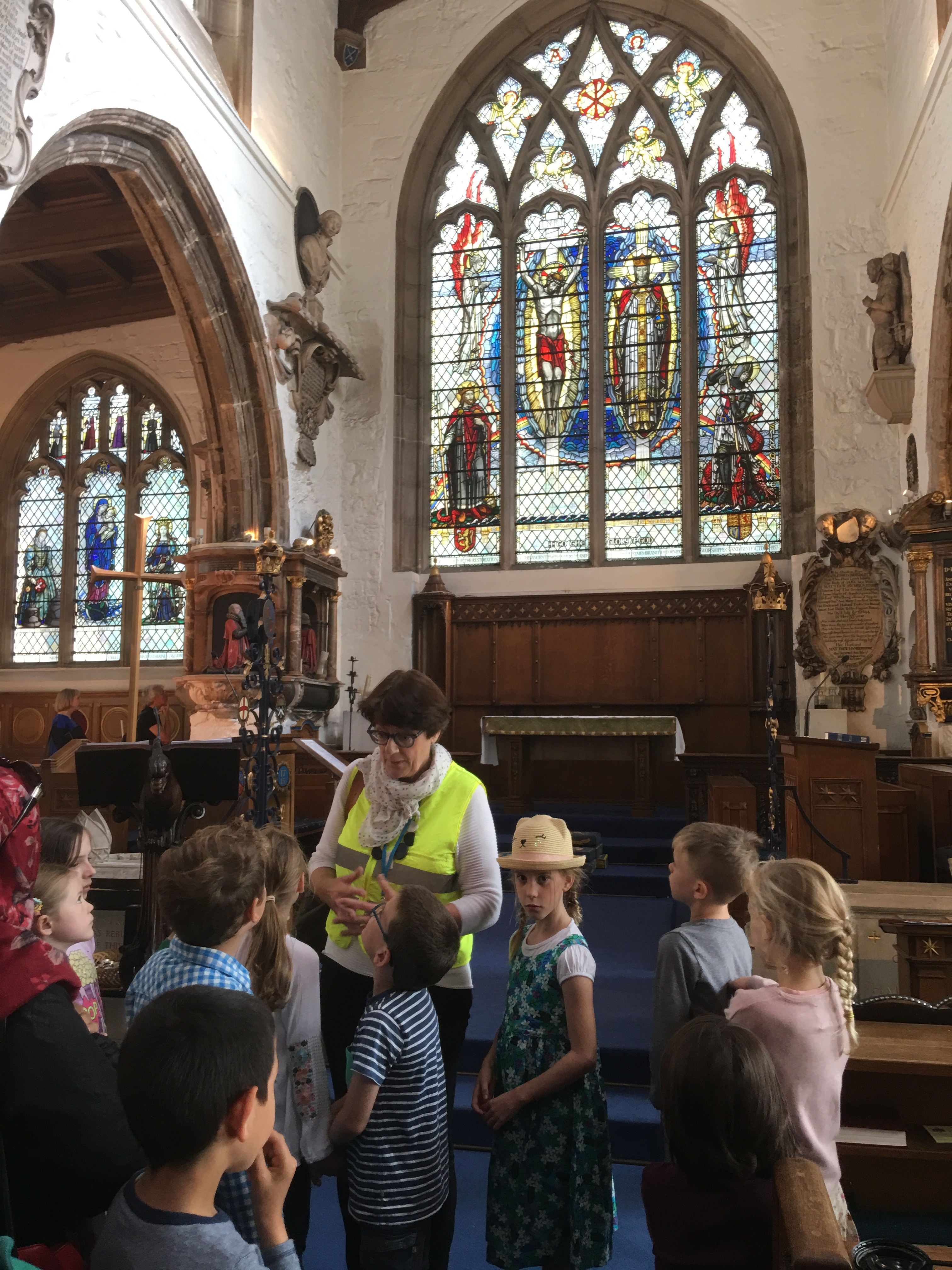
From St Olave’s we returned to All Hallows
We ate our lunch outside
Before starting a full afternoon of activities
Dressing up as Samuel and Elizabeth Pepys
With bonnets and periwigs
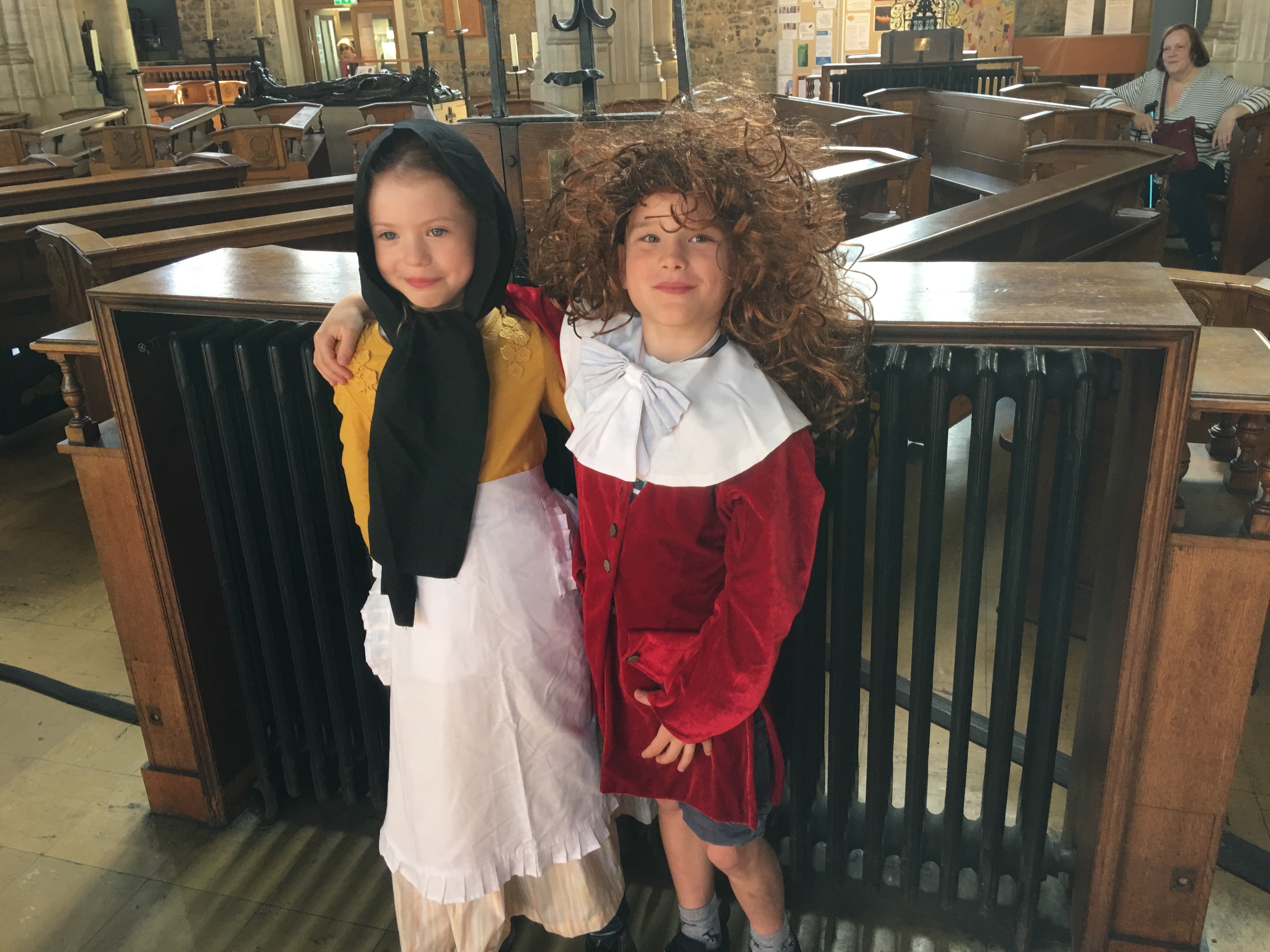
Writing with quill and ink
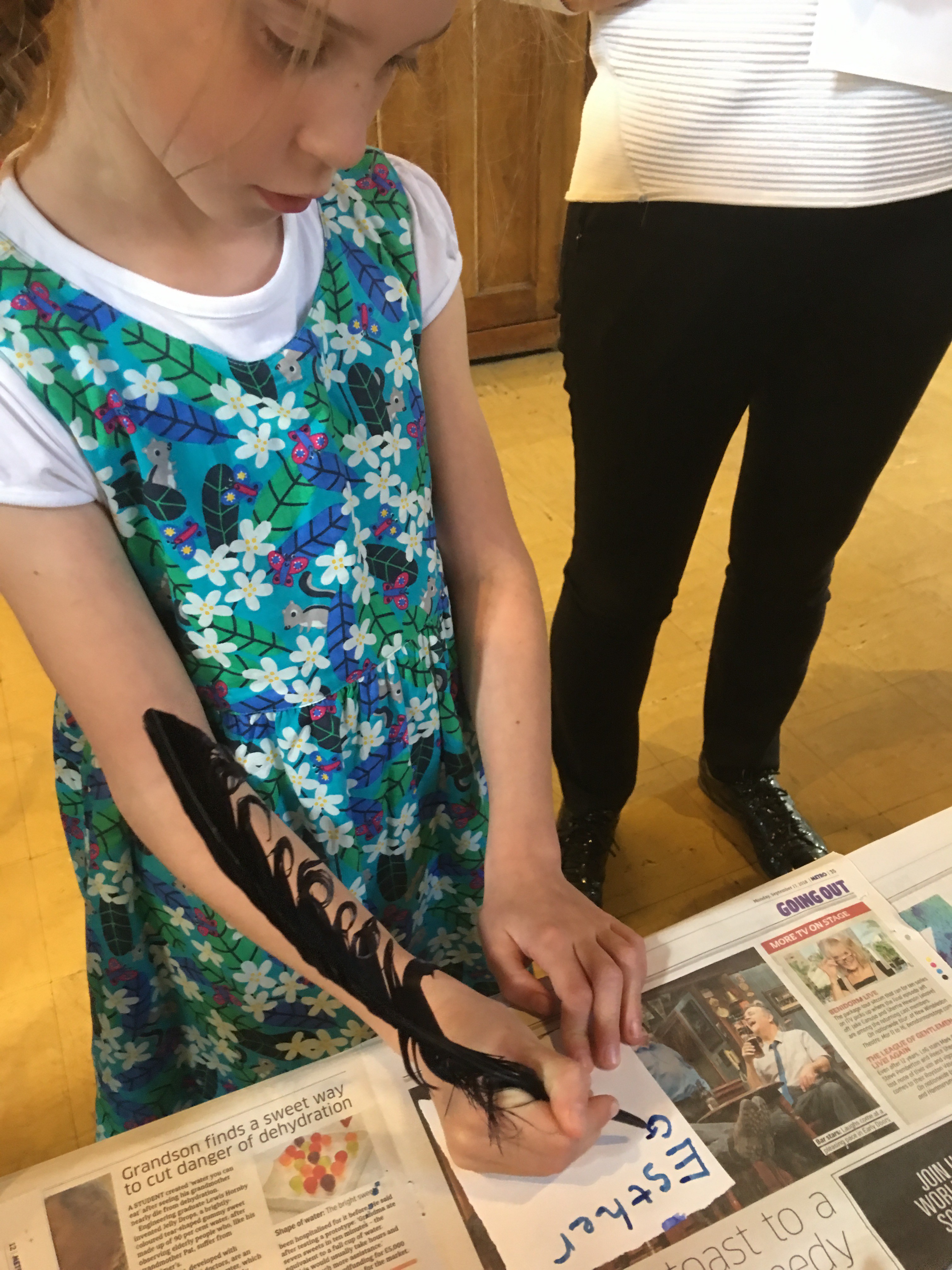
Being history detectives
Finding clues around the church
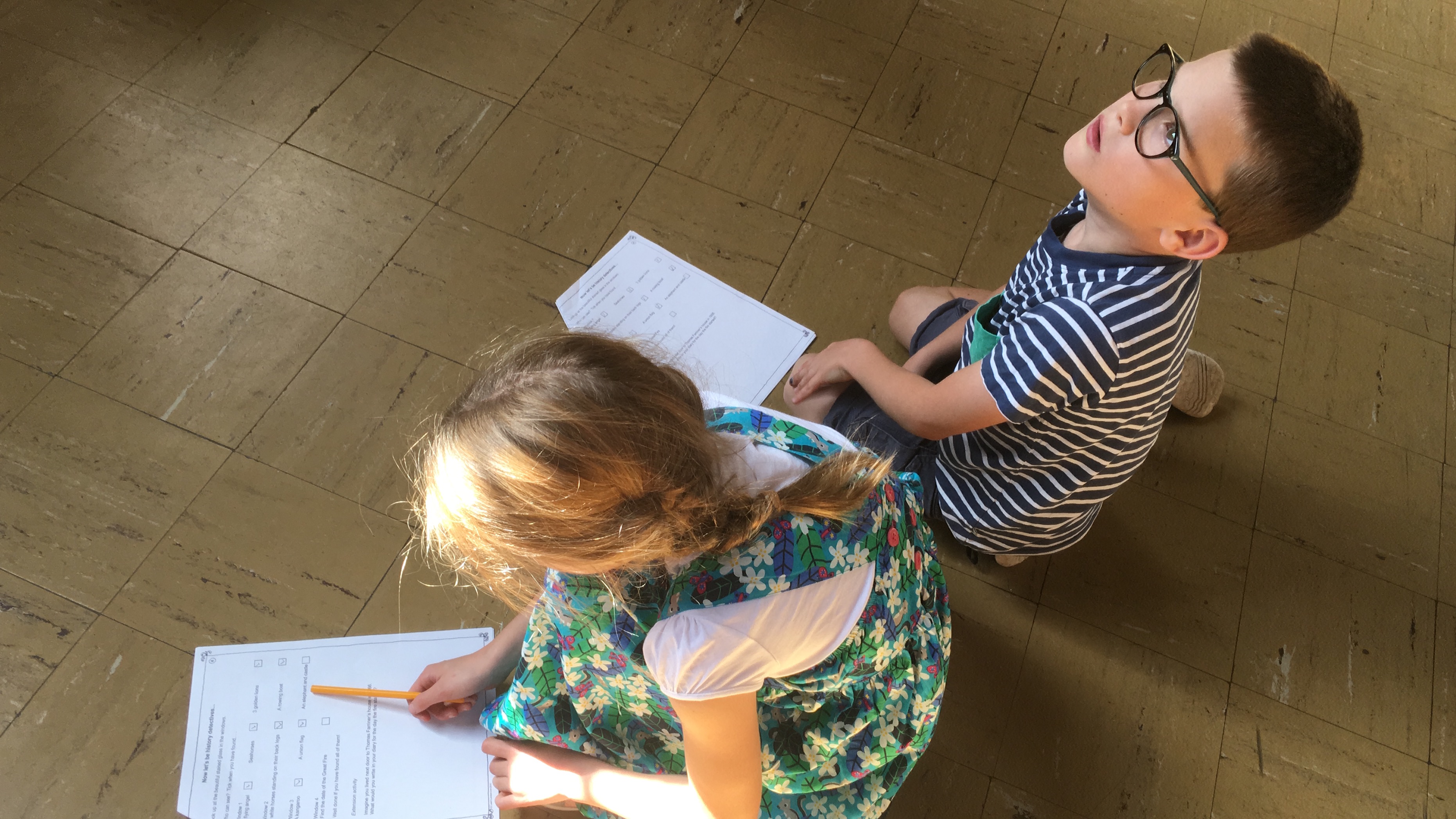
And in the stained glass windows
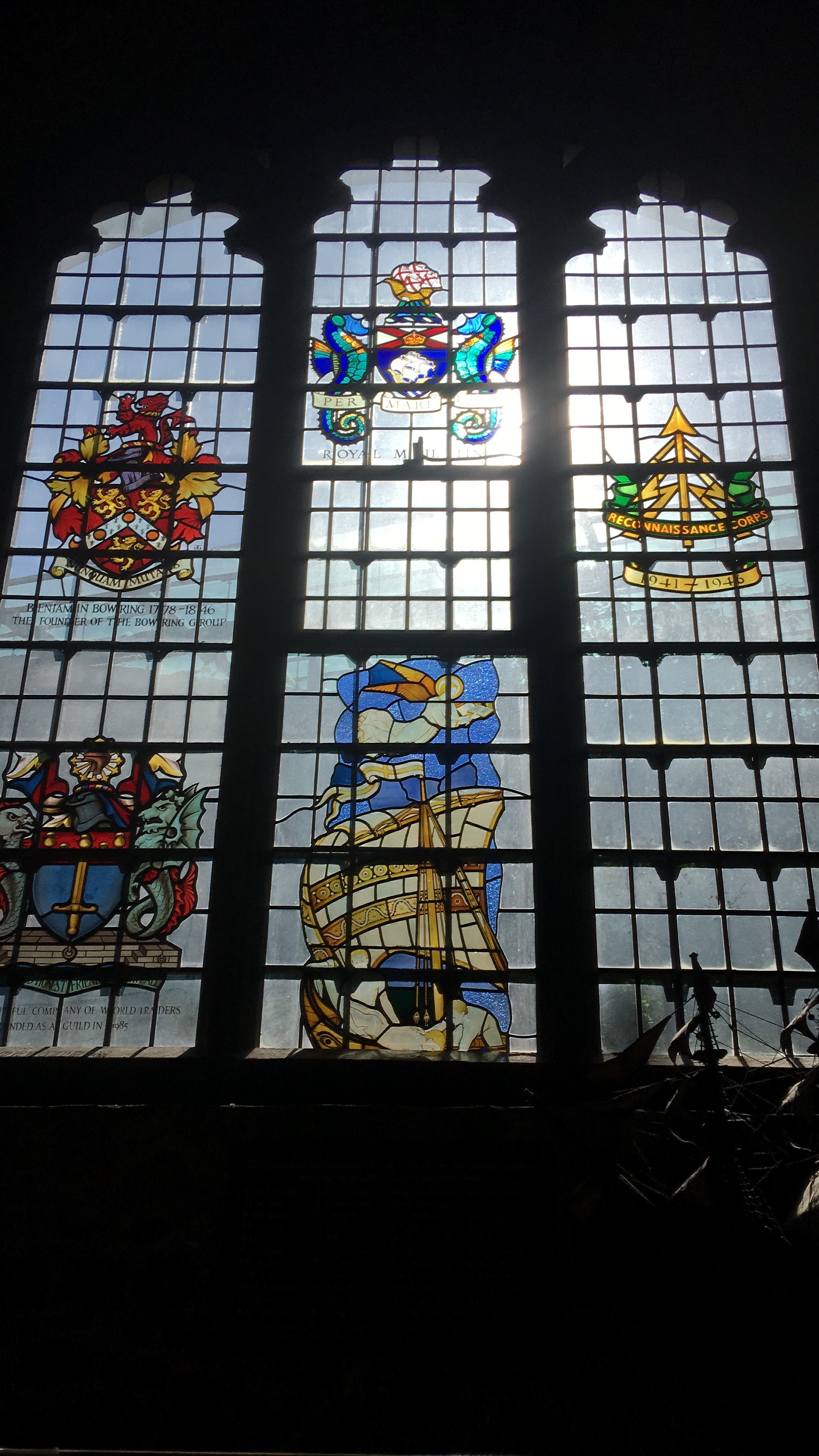
We read an extract of Pepys’ diary
So much learning
So much fun
It really was a very special afternoon
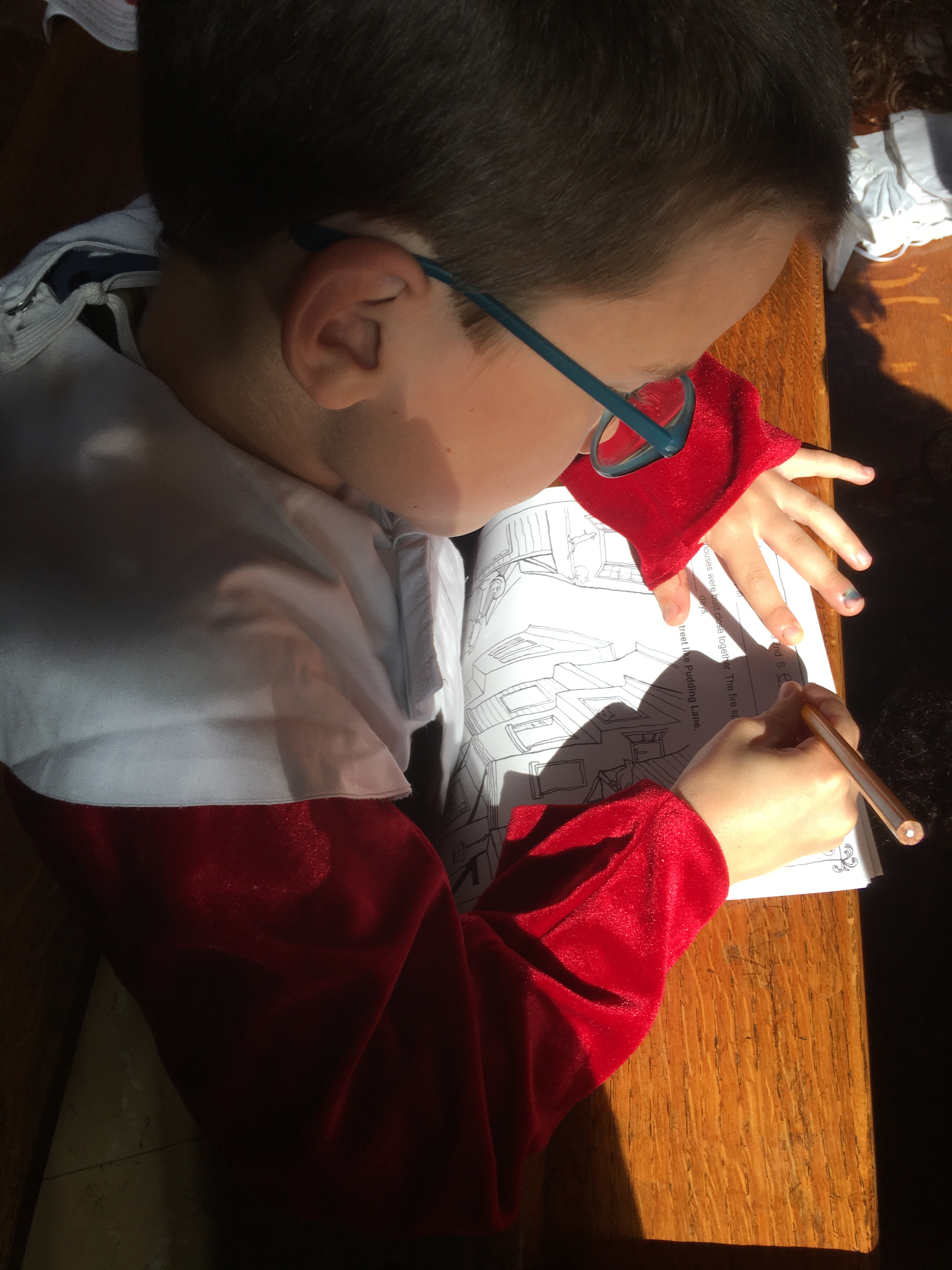
The whole day was wonderful actually
We all learned so much
We all laughed and smiled
The weather was glorious
And we were all making up stories about the mysterious Shard
That seemed to follow us wherever we went
The Shard of 1666
The Mysterious Shard
The Shadow of The Shard
Step Back in Time with The Shard
It was wonderful to see the children learning
But also playing
Bonding
Building friendships
It was a magical day
One of the best kind of Home Ed days
After the visit ended
We walked back to London Bridge Station with friends
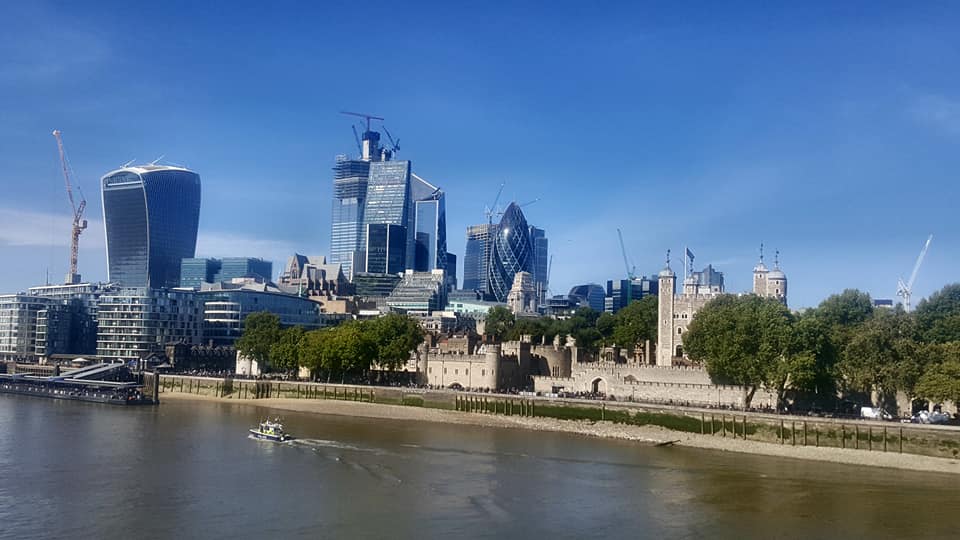
We walked over Tower Bridge and enjoyed the view
The children played in fountains near HMS Belfast
And the sneaky Shard
Well, he seemed to follow us all the way home!
(Thank you Seeking Sights for your comprehensive note taking on the trip)

Gosh, what a lot of walking! My daughter did the Great Fire Of London at school so we also visited the monument over the summer but had no idea all that other, deeper, things were nearby. If you get the chance again and it piques your interest, the tower bridge exhibition is well worth a visit. Xx